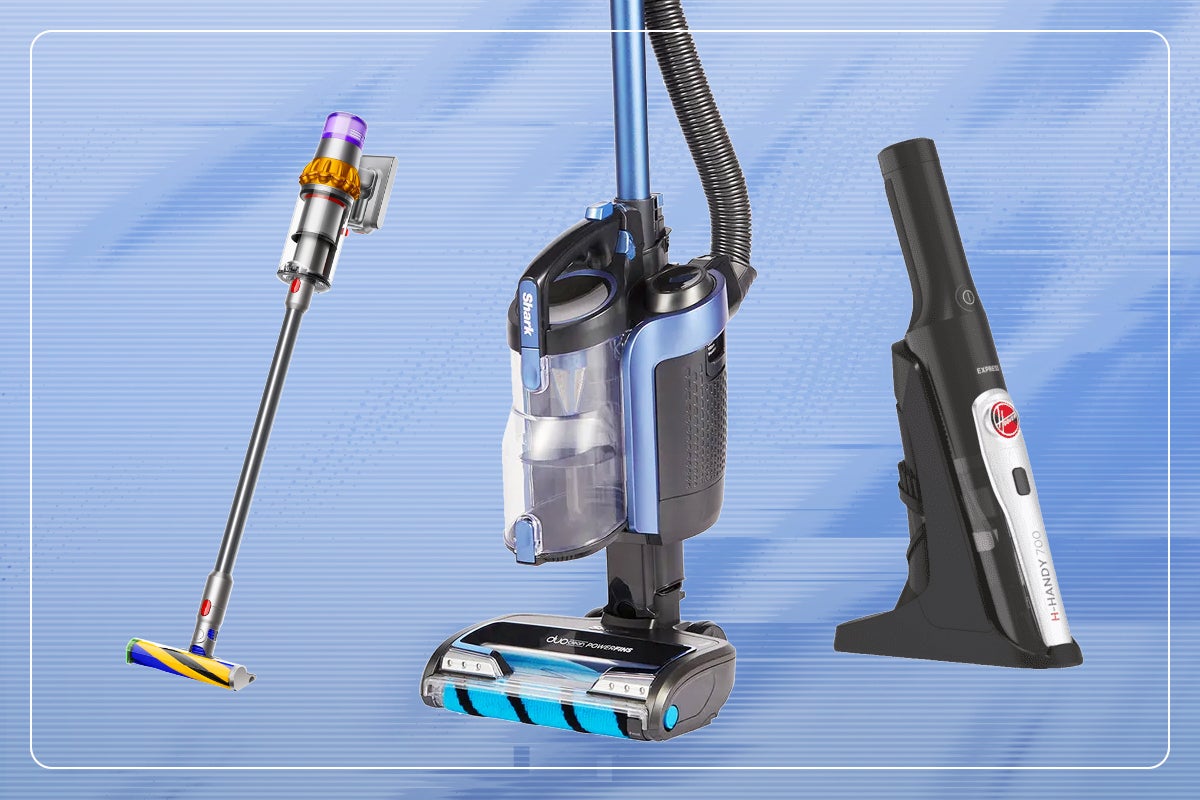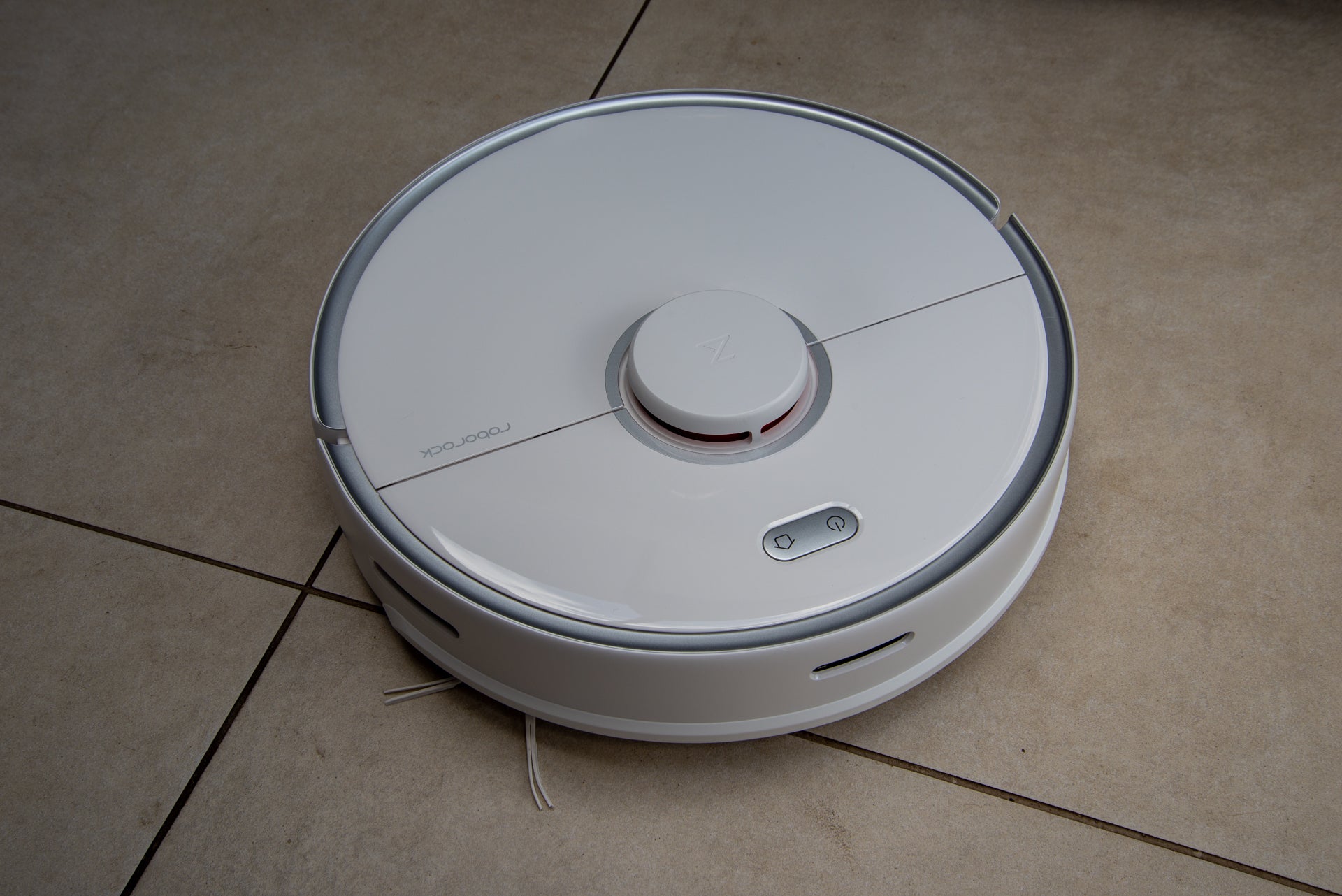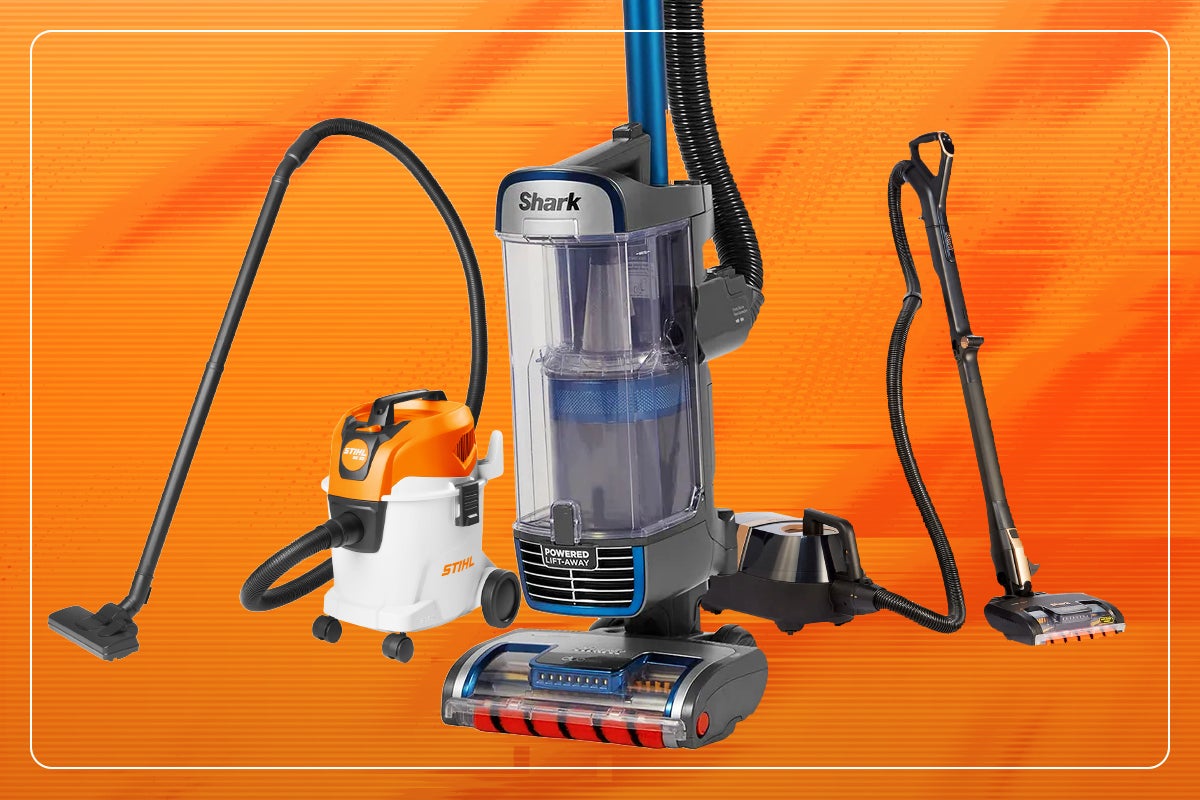Ultenic FS1 Review
A well priced vacuum cleaner with a self-empty dock.
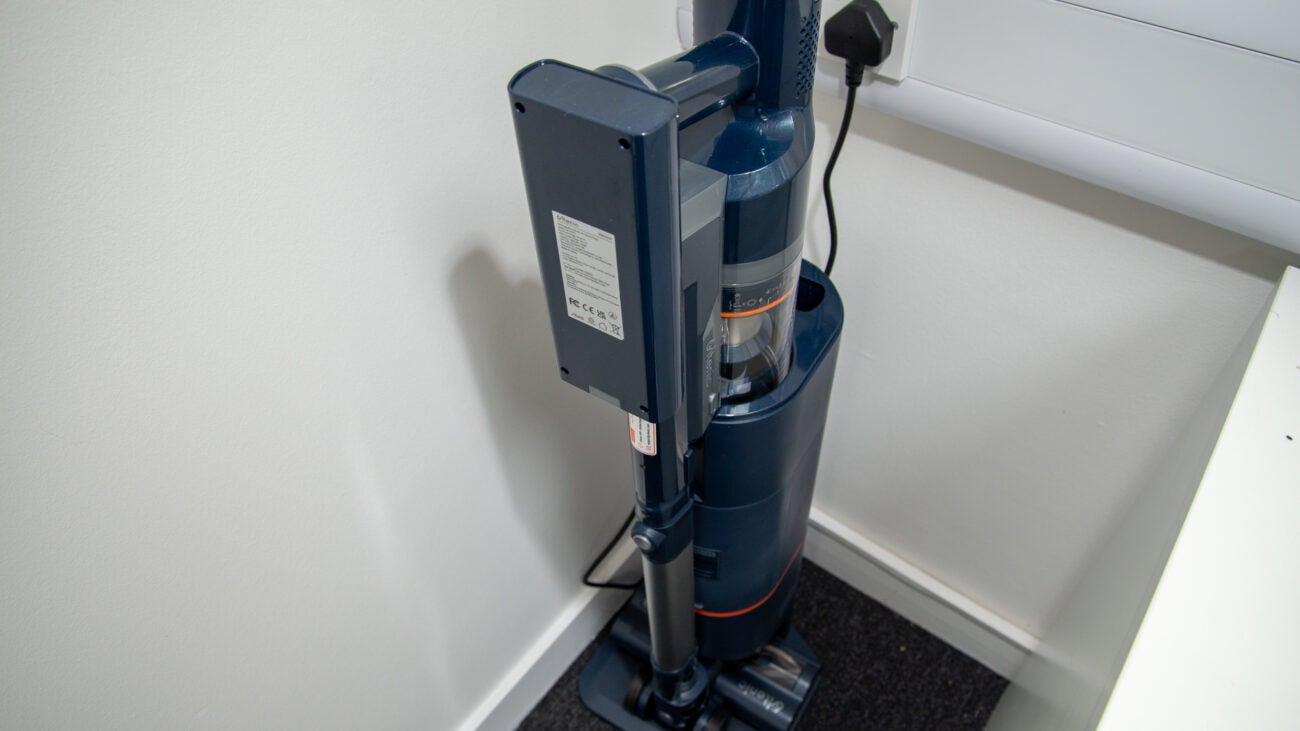
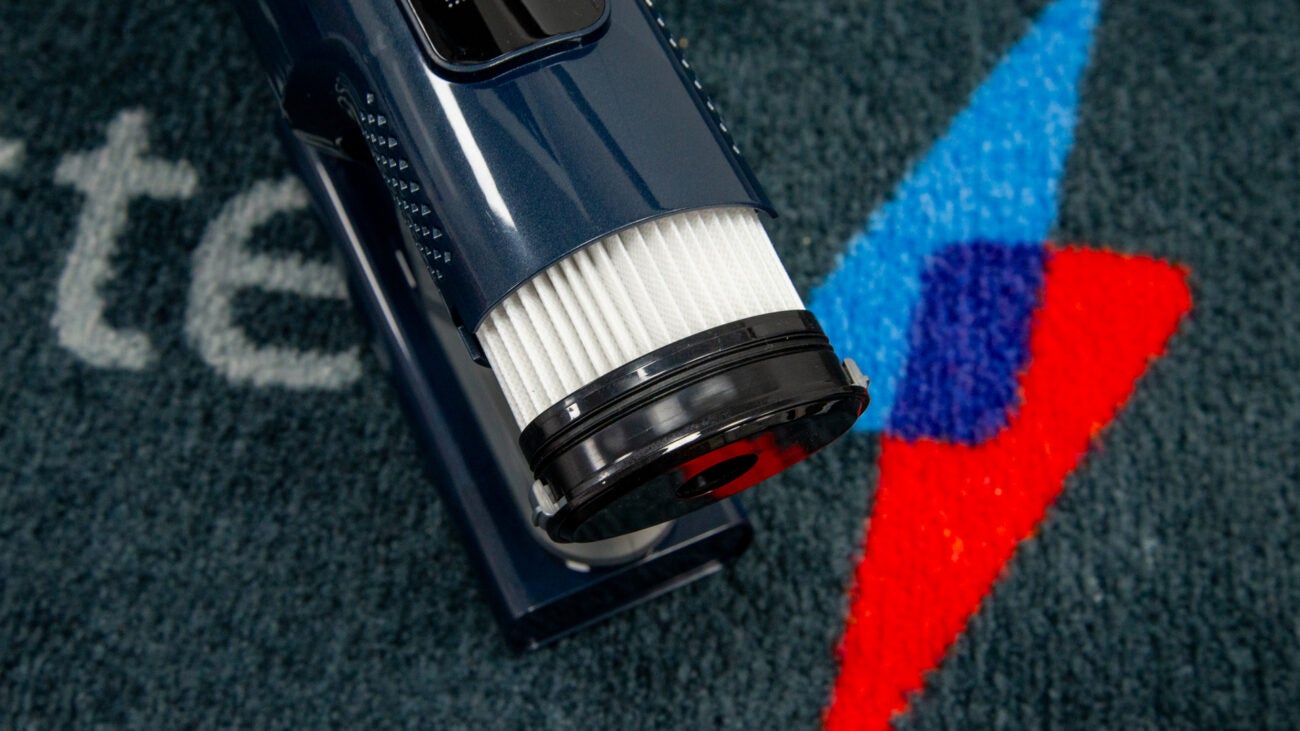
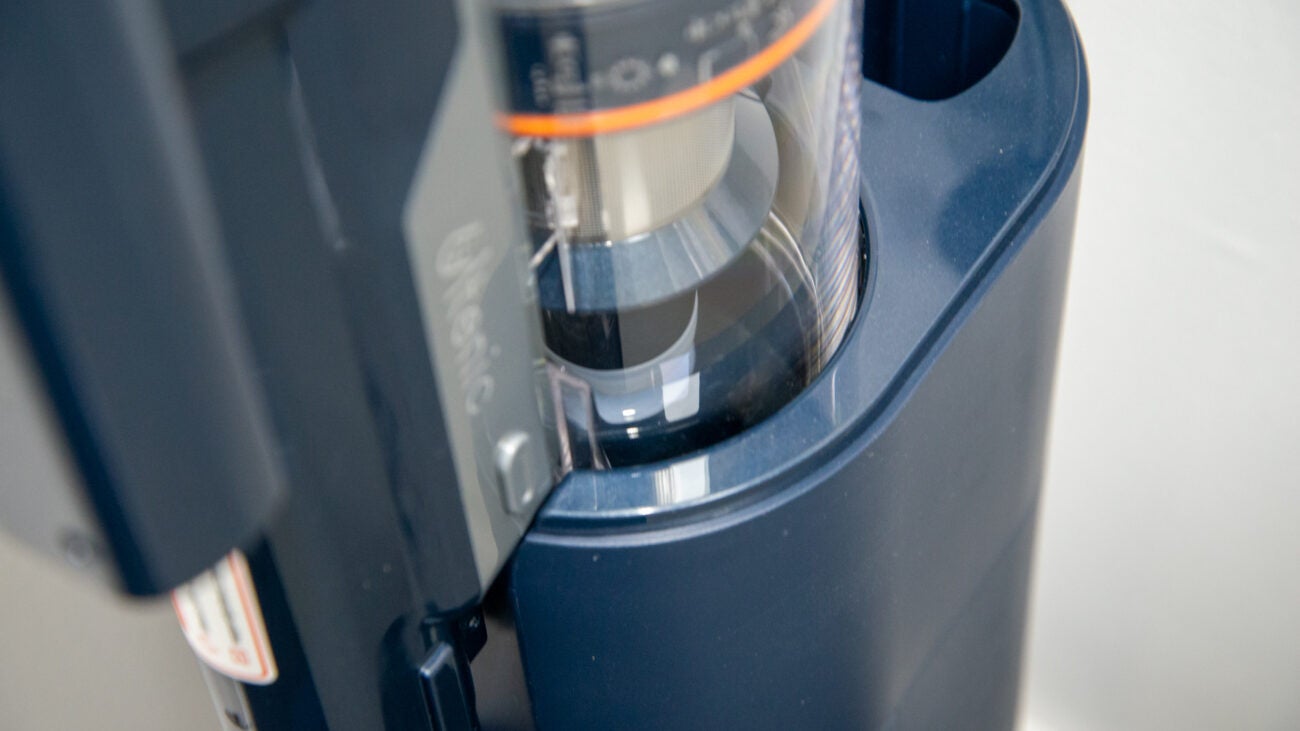
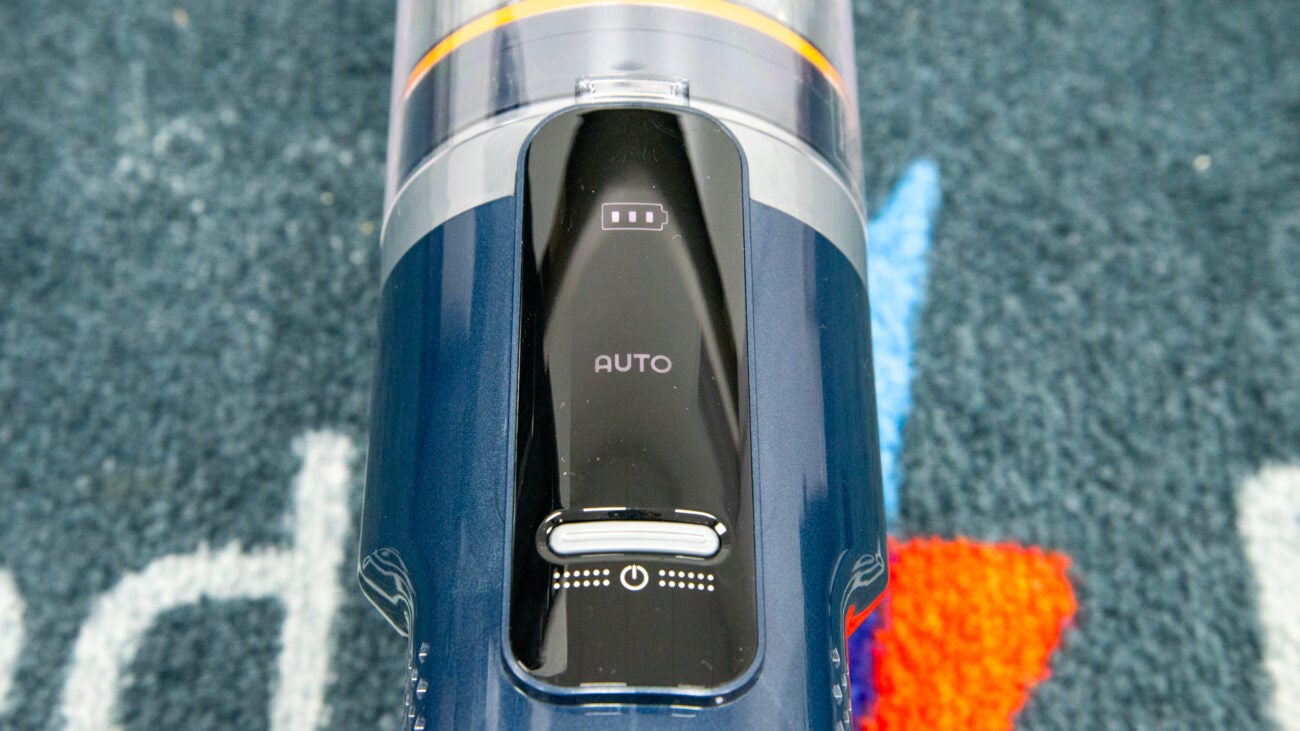
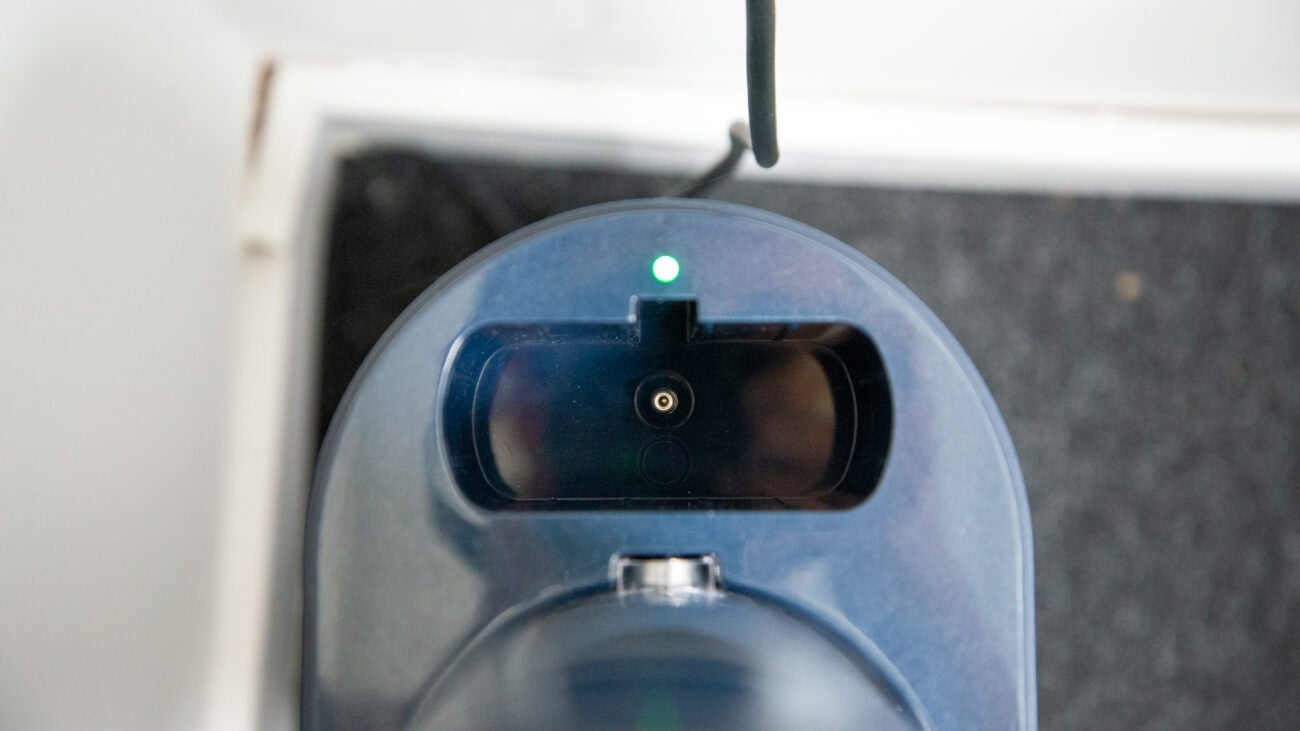
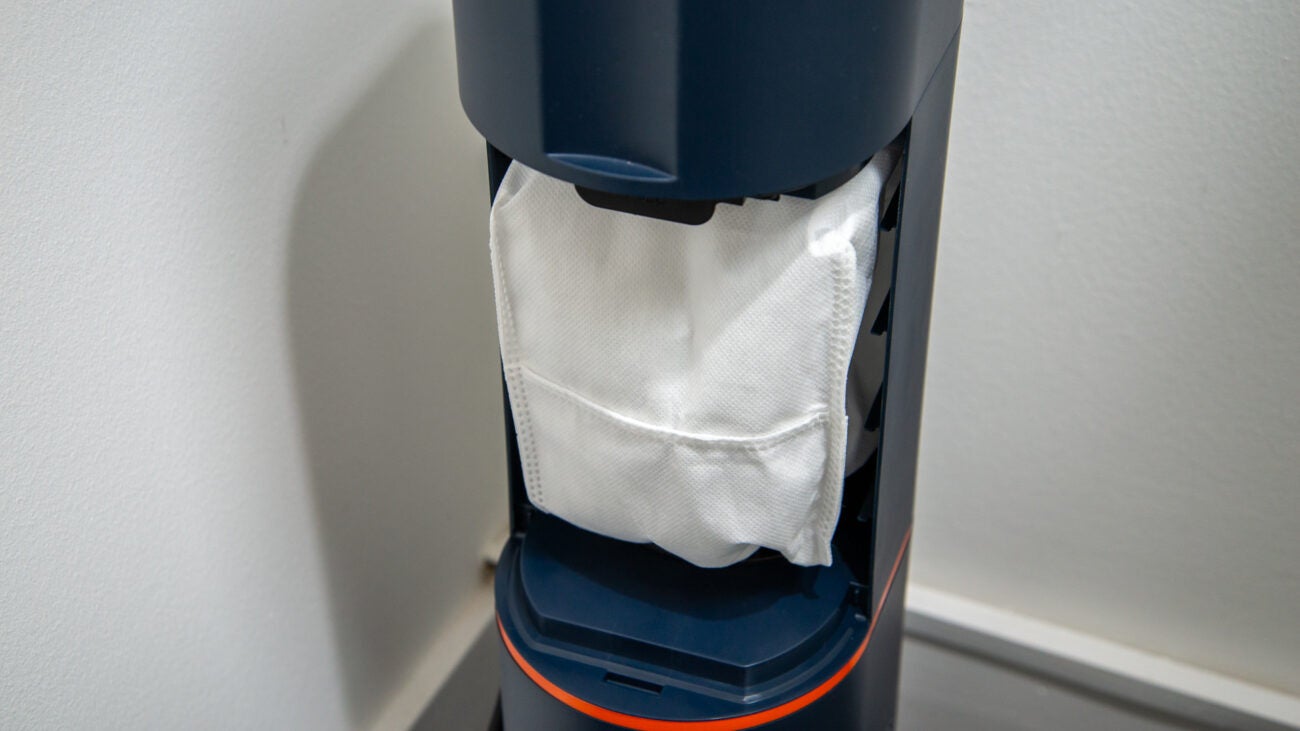
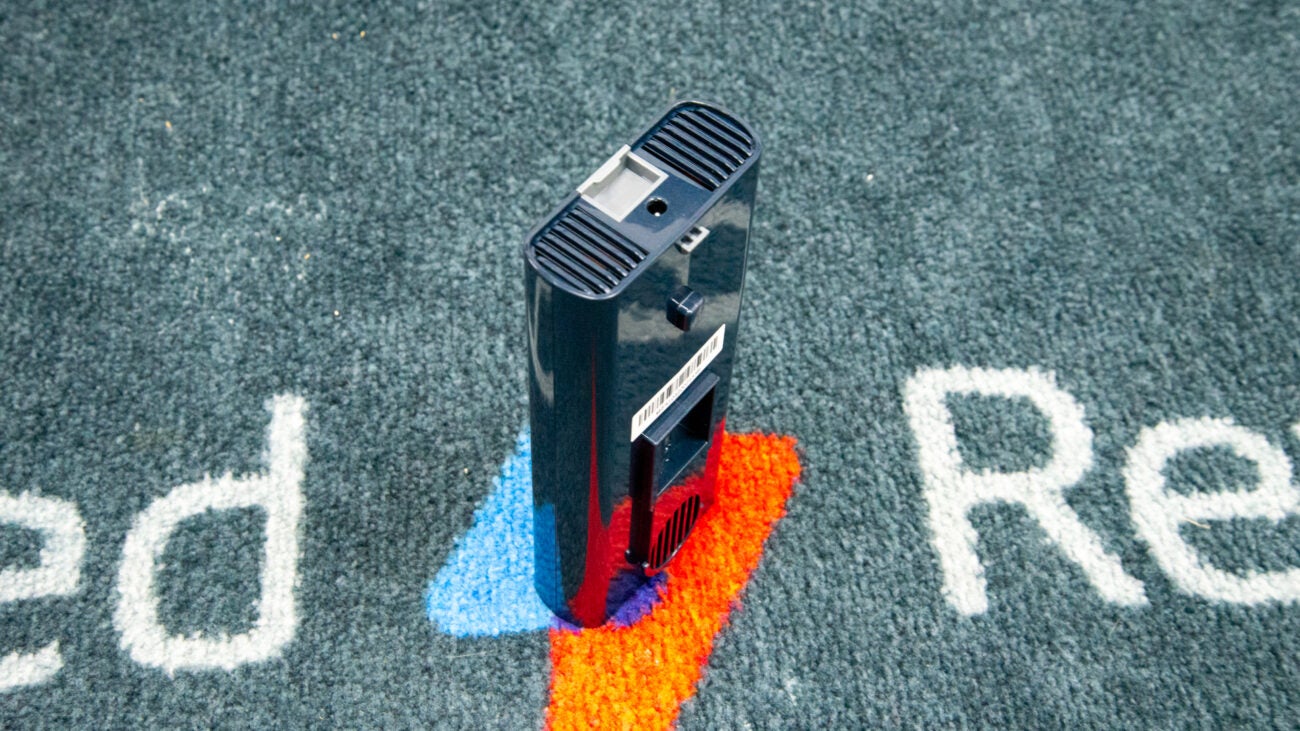
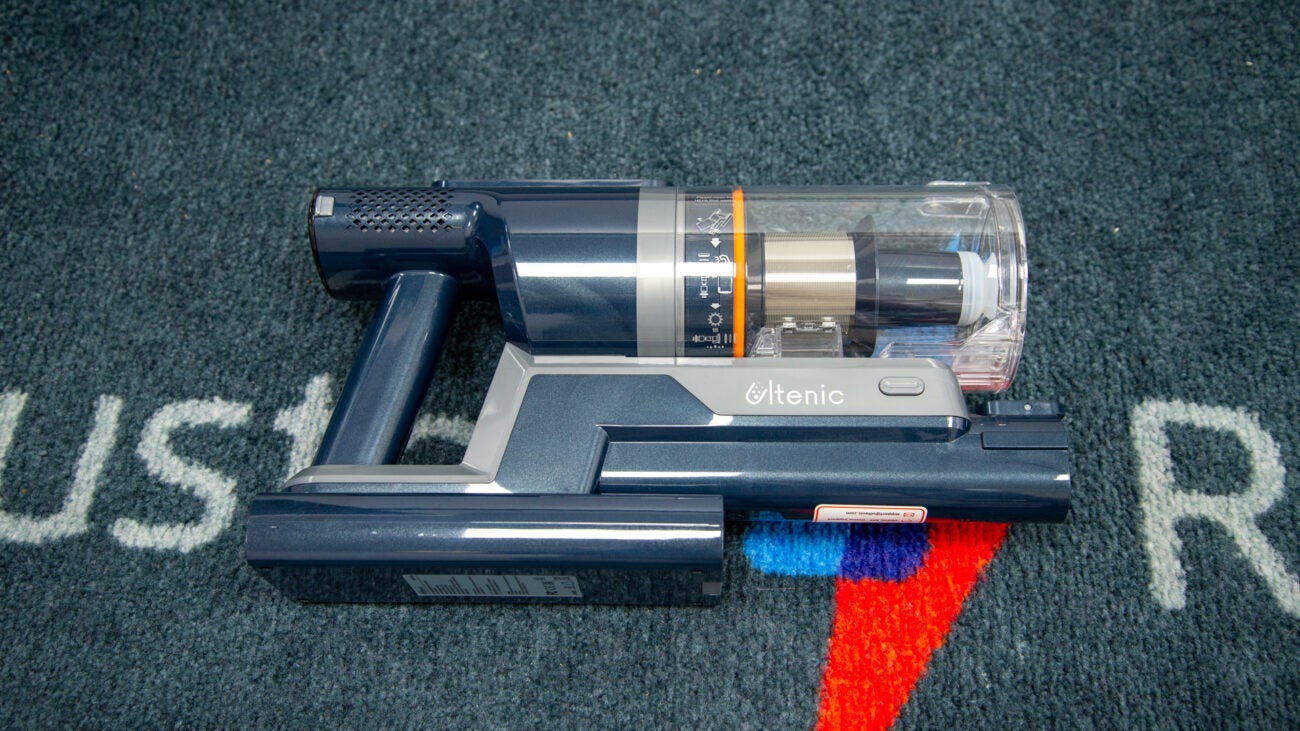
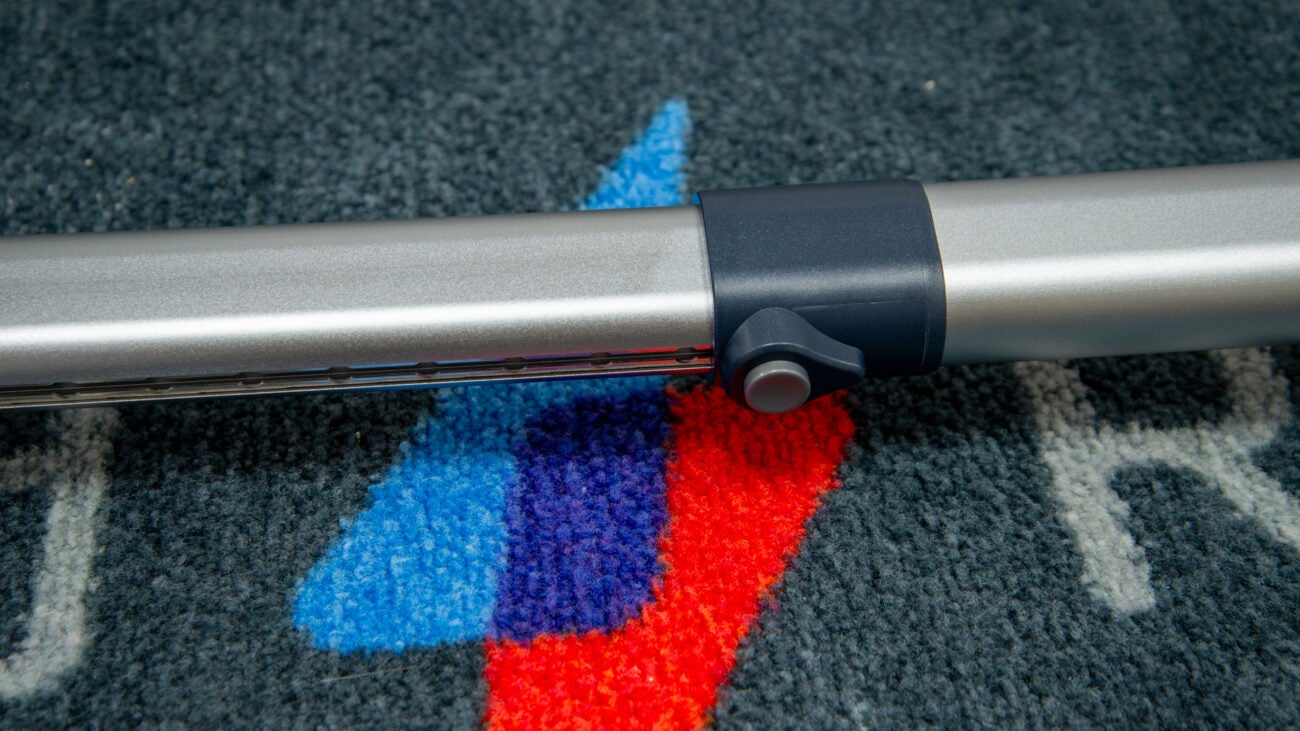
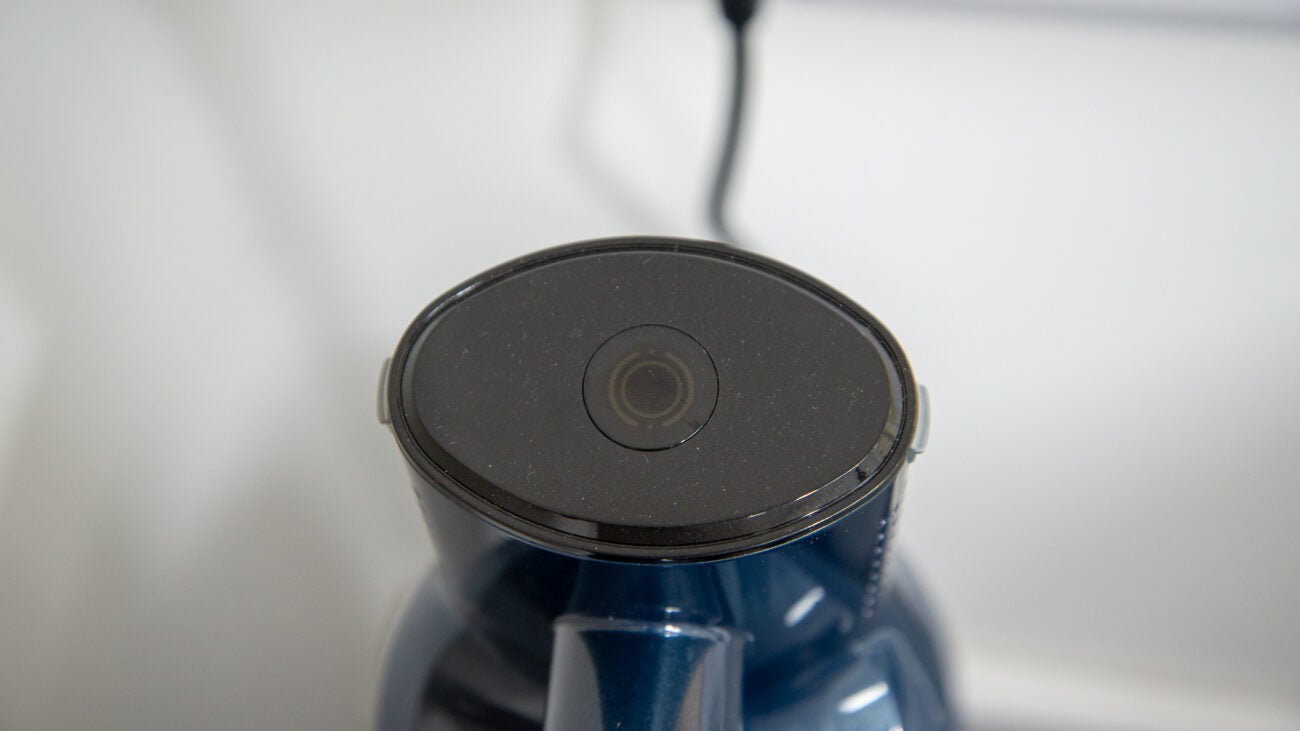
Verdict
A very well-priced vacuum cleaner, the Ultenic FS1 comes with a combined charging and self-empty dock, making it clean and frustration-free to empty. It has a lot of raw power and decent battery life, although carpet and edge performance could be better.
Pros
- Good value
- Adjustable wand
- Auto empties
Cons
- Auto mode didn’t seem to adjust power much
- Edge performance could be better
Key Features
- TypeThis is a cordless stick vacuum cleaner that has a self-empty dock.
- Battery lifeUp to 60 minutes on its lowest power setting.
Introduction
A cordless vacuum cleaner is about convenience, and the Ultenic FS1 has taken that mantra to its extreme level.
Not only does this cordless cleaner do everything a regular model can do, but it has a height-adjustable wand, a self-empty station and plenty of power.
Design and features
- Recharges and empties into the standing dock
- Three power modes, including automatic
- Limited selection of tools
Similar to the Samsung Bespoke Jet, the Ultenic FS1 ships with a clever charging dock that doubles up as a self-empty station.
Drop the vacuum cleaner into the dock and hit the button on top, and the dock sucks all of the dust out into a disposable 3-litre bag. Just be aware that the flap doesn’t close automatically, so remember to shut this before starting to clean.
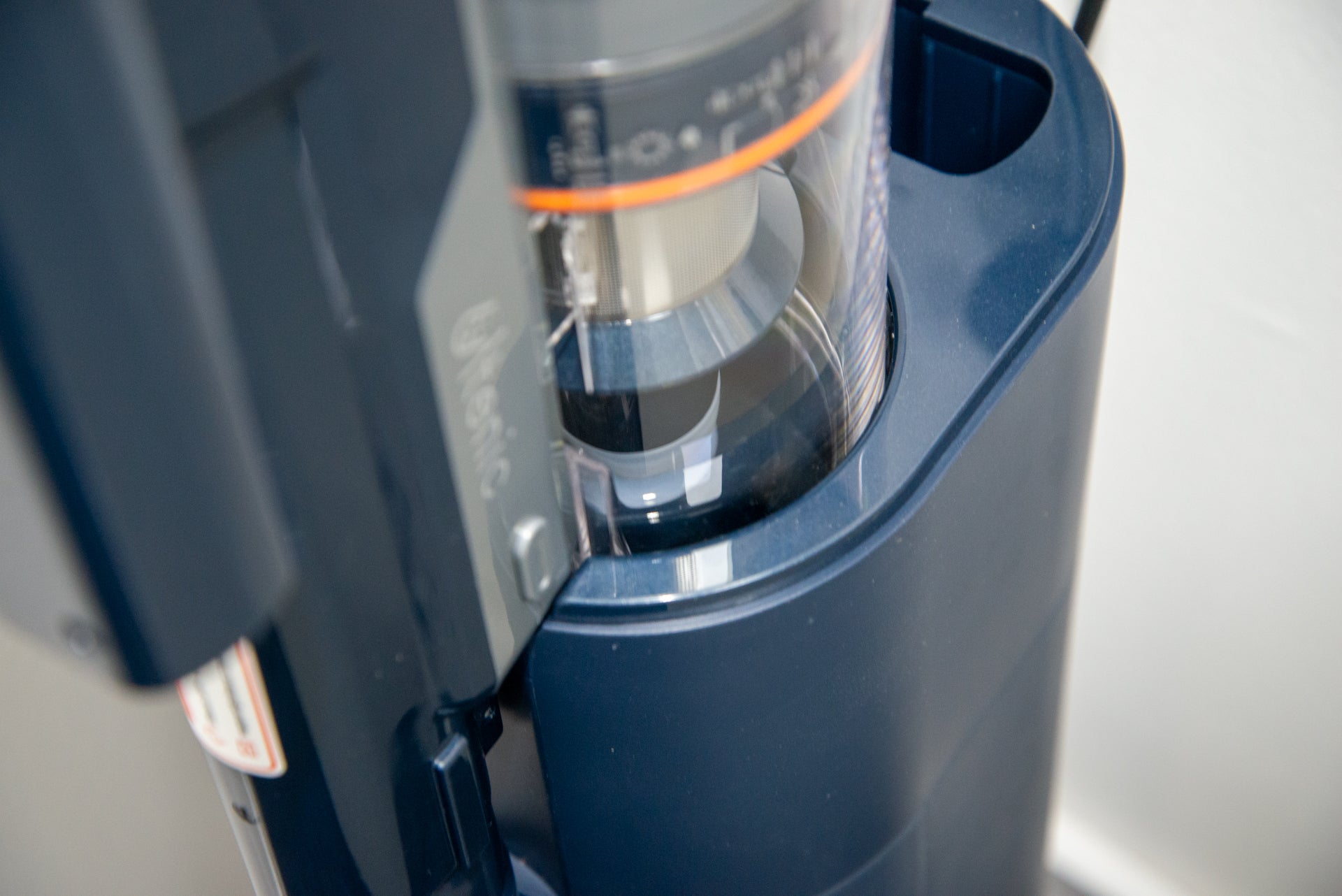
That’s enough space to last up to six weeks, with replacements costing around £27/$26 for six. That’s not bad value, and a worthwhile investment if you’re sensitive to dust and want a cleaner way of emptying the bin. Ultenic includes three bags in the box.
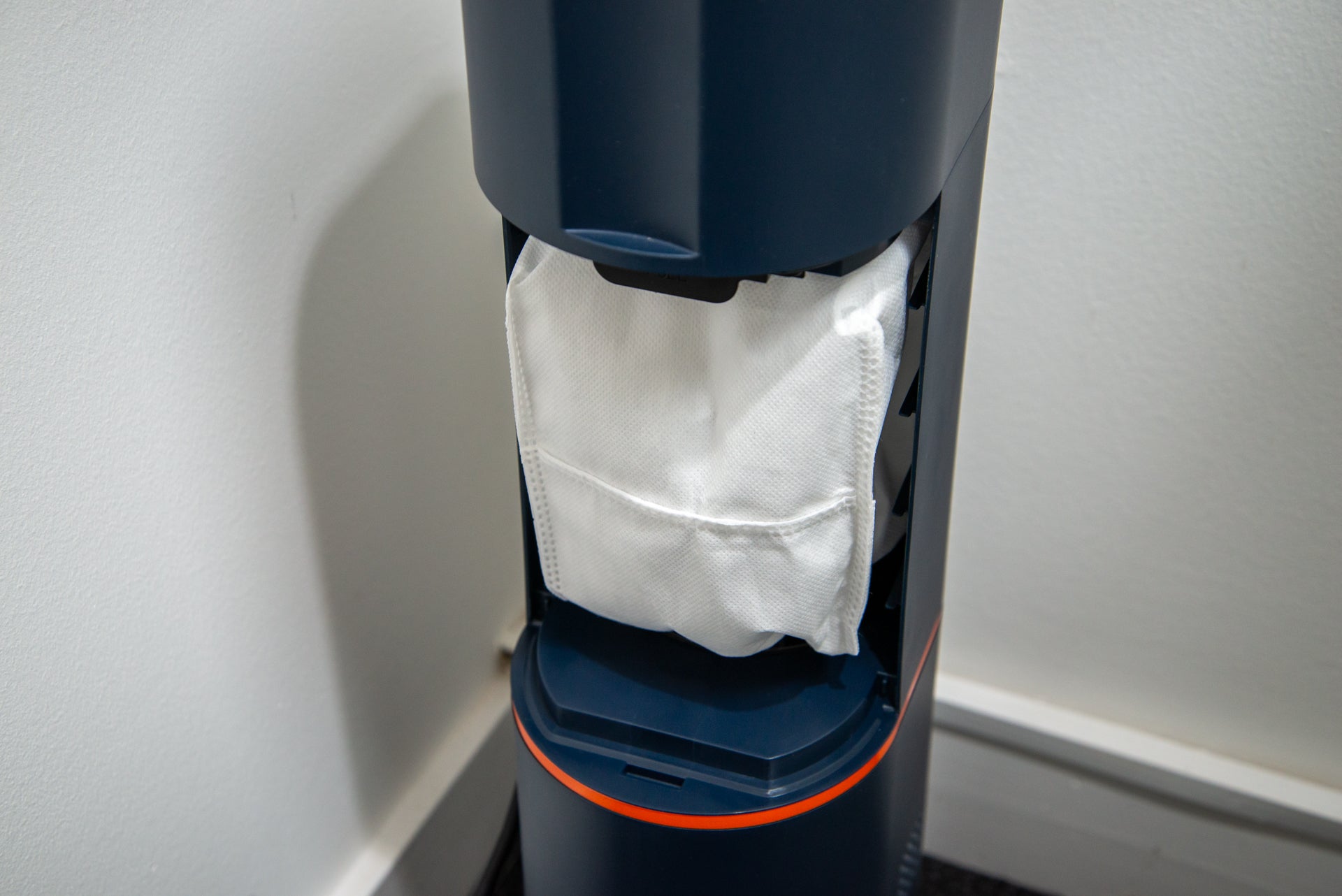
While cleaning, the Ultenic FS1 sucks dust up into 0.66-litre bin. That’s big enough to cope with a regular full clean of a house.
This bin can be removed, and the inner cone and filter removed. That allows for a full clean of the internals, keeping the Ultenic FS1 at optimal power.
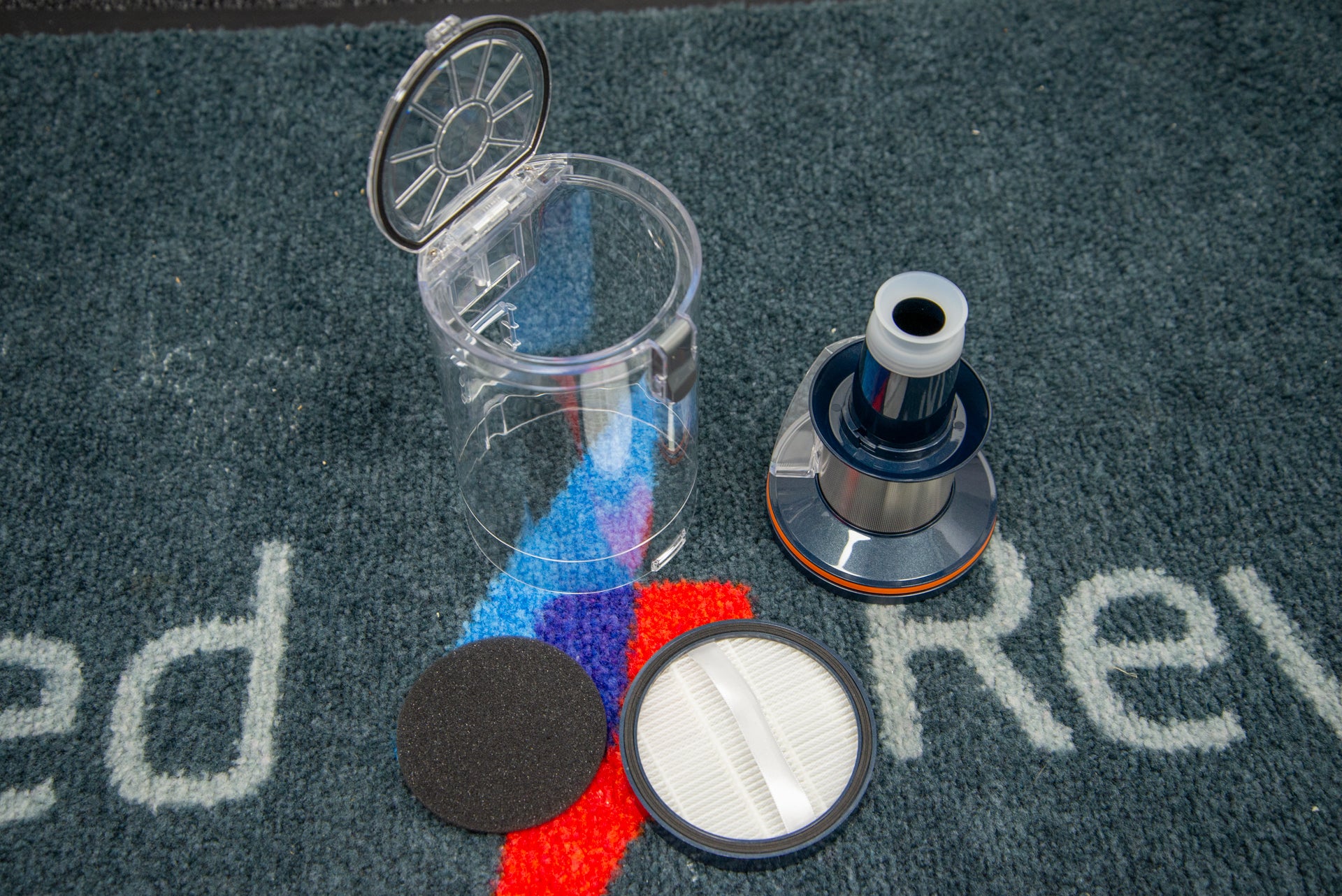
A second filter sits post-motor at the rear of the vacuum cleaner, designed to stop any microscopic bits of dust from being blown back out into your house.
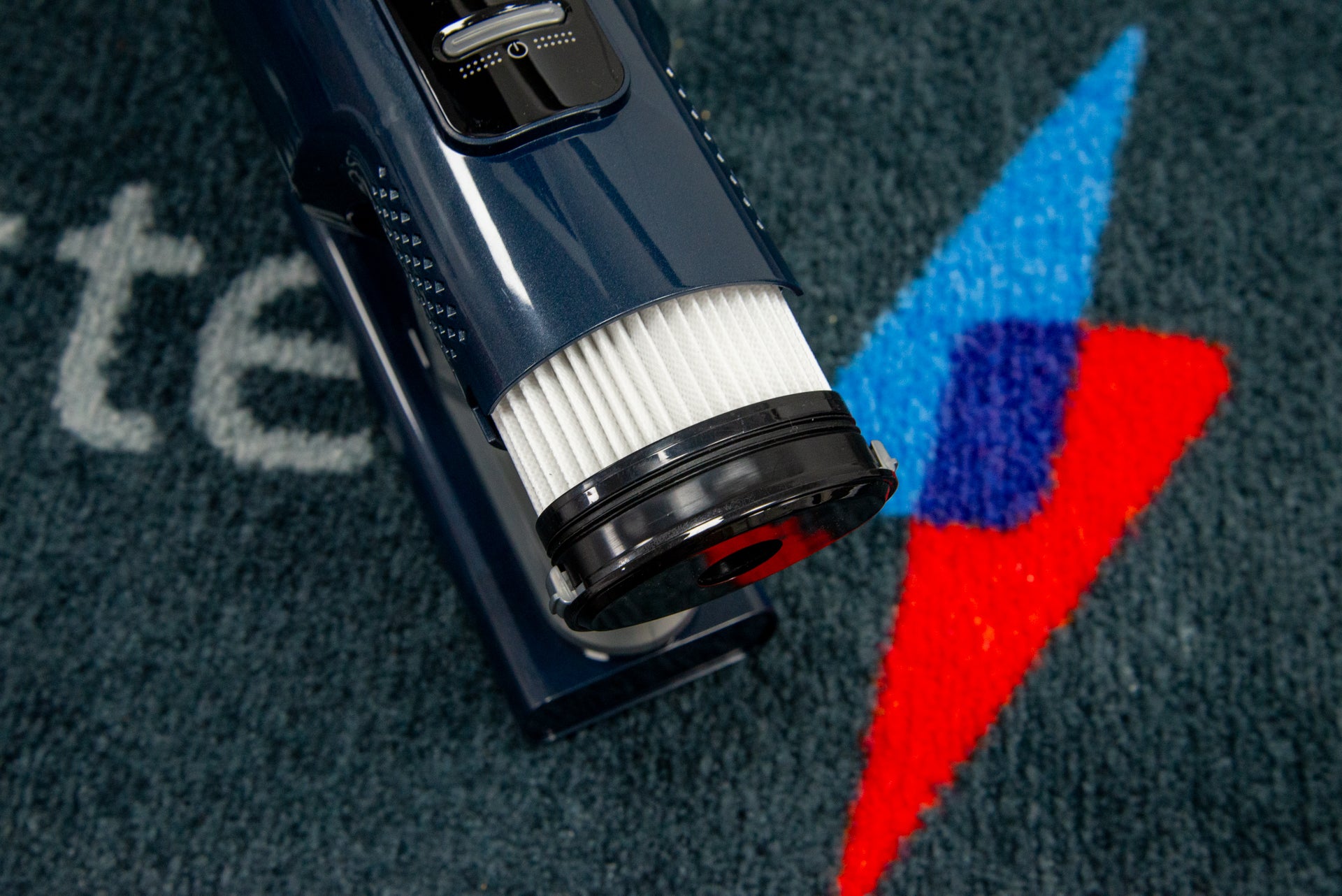
There’s a single battery in the box, which charges while the vacuum cleaner is plugged into its dock.
Cleverly, the dock has space for a second battery, so you can buy a spare one ($59.99) and have them both charged at the same time, doubling how long you can vacuum for.
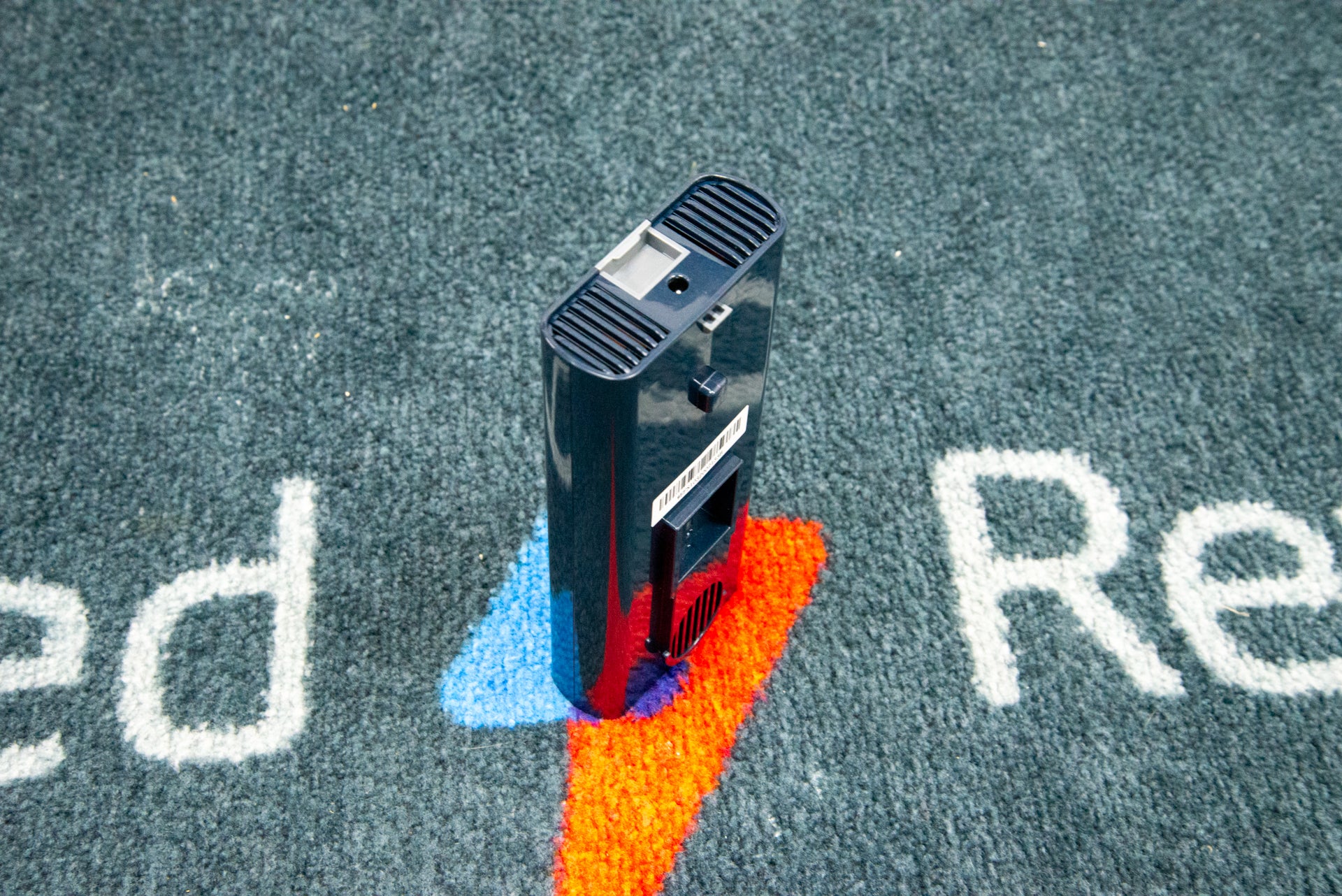
Using the 3.1kg vacuum cleaner is easy. It’s one of the few cordless vacuum cleaners, alongside the Vactidy Blitz V8, to have a height-adjustable wand. I’m a big fan of these, as the vacuum cleaner can be adapted to people of different heights.
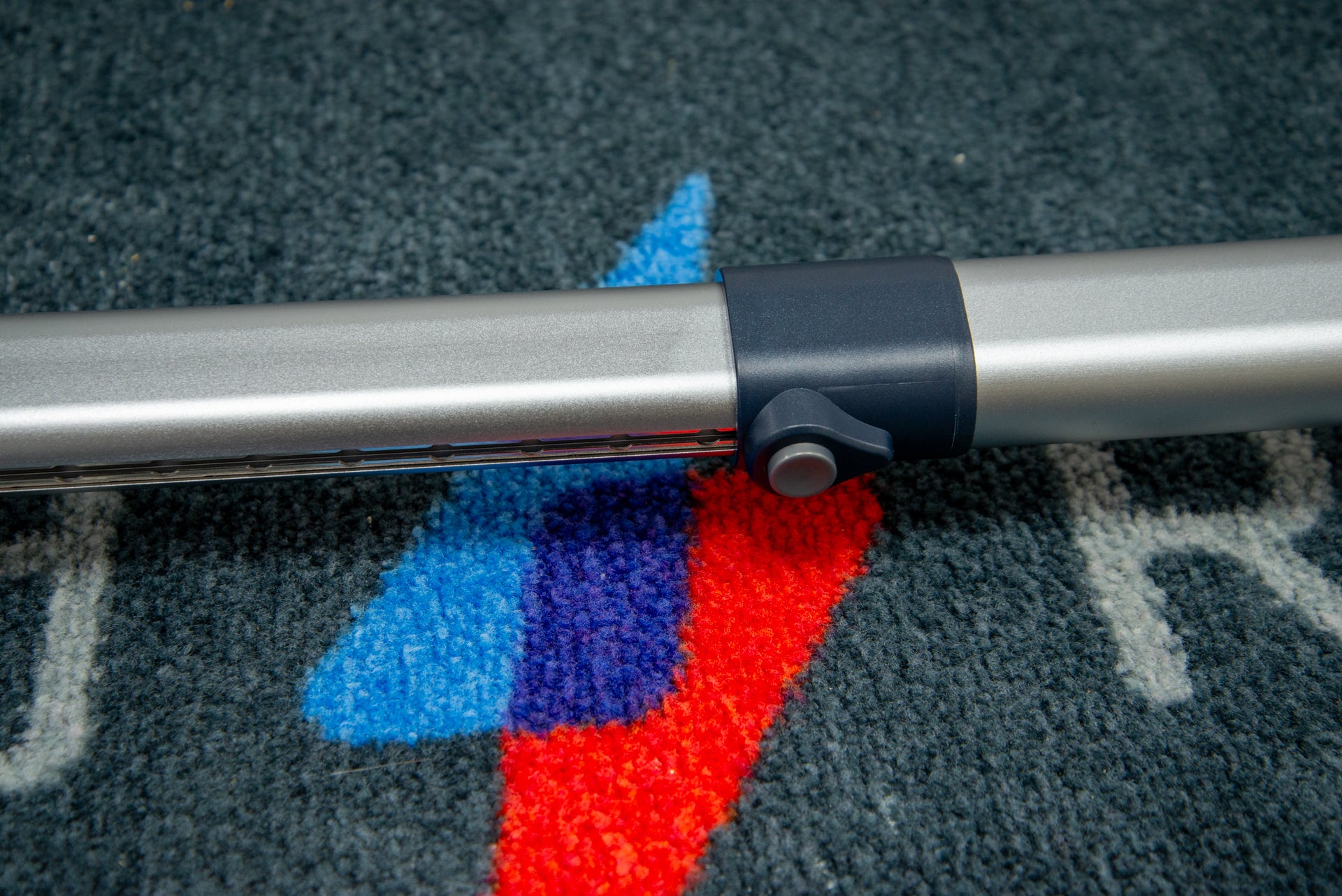
I found this vacuum cleaner to be well balanced, too. Lifting it up to clean around the top of my walls, where the meet the ceiling, was easy to do.
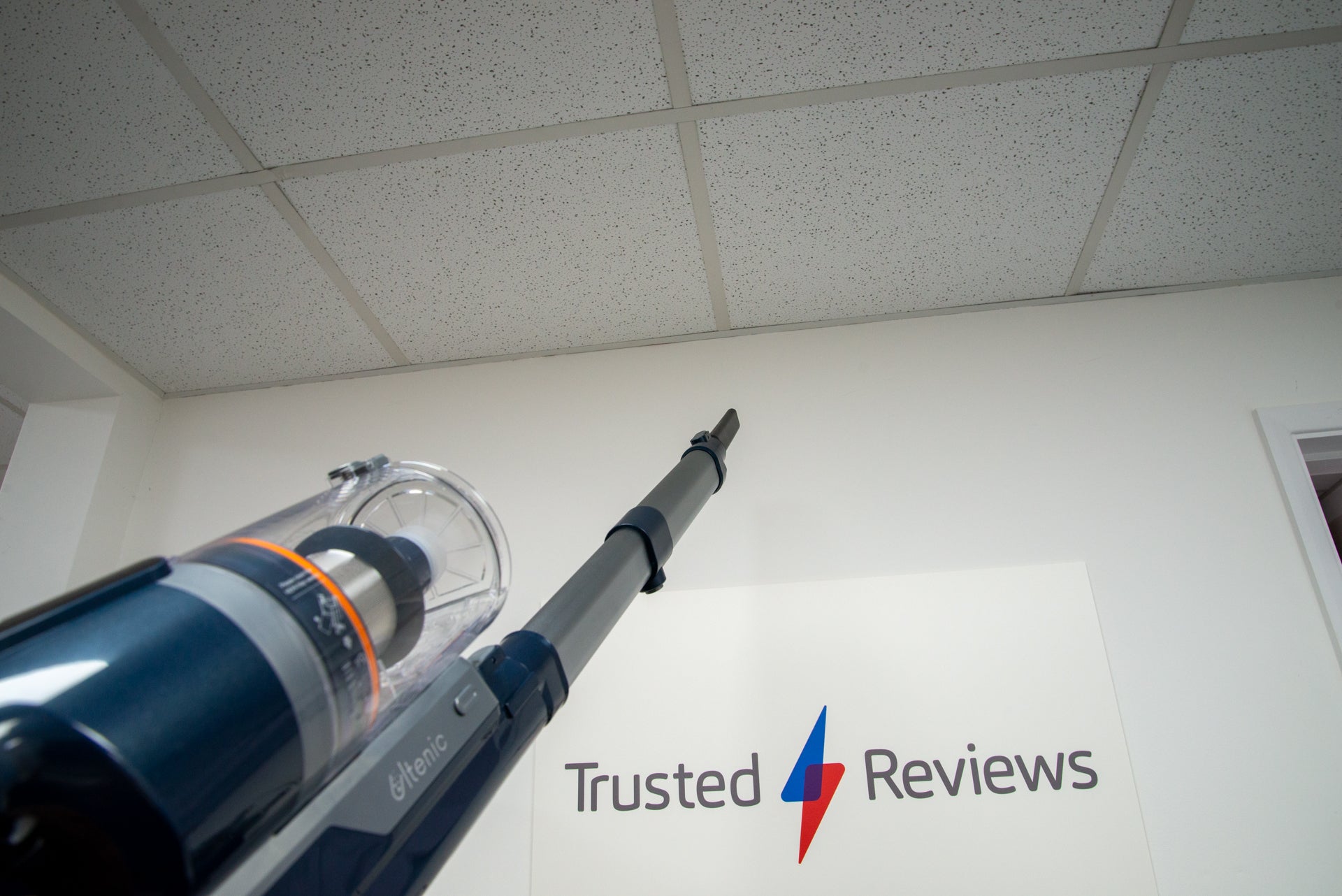
Ultenic provides the basic tools in the box: a motorised floor brush, a crevice tool and a dusting brush. Unfortunately, there’s nowhere to store the two handheld tools. Some kind of accessory holder, either on the wand or dock would have been useful.
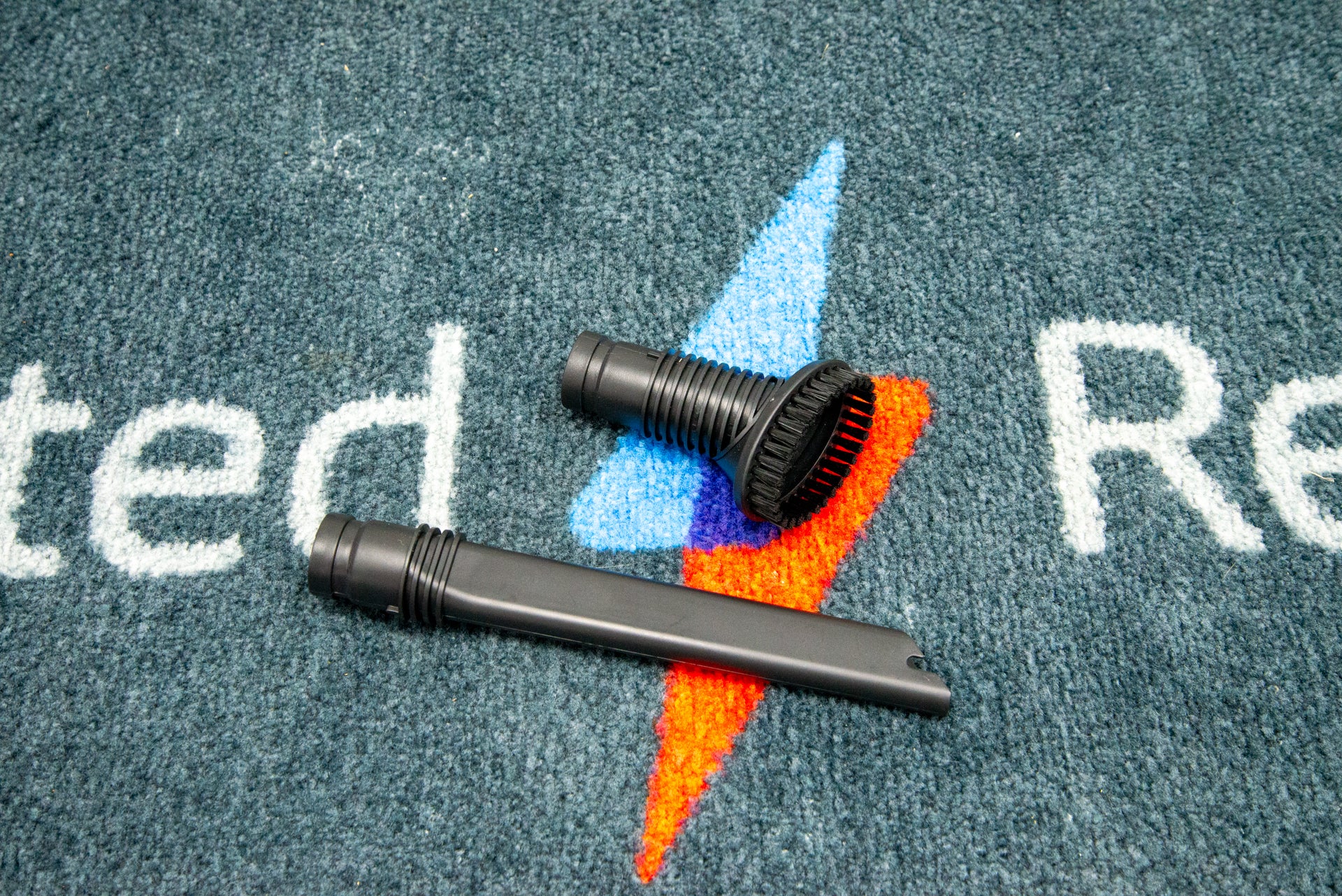
There’s a tool for cutting away hair from the roller, as this isn’t a tangle-free cleaner. If you’ve got people with long hair or pets, then an anti-tangle vacuum cleaner will make more sense.
A single power button turns the vacuum cleaner on in its Auto mode. This is designed to change power automatically when the vacuum cleaner detects that it’s on carpet. I couldn’t hear any indication that it was working, so it’s hard to verify what this mode does.
Vacuum cleaners with dust sensors, including the Dyson Gen5detect and Shark Stratos IZ420UKT, are more sensitive and, when using them, I can hear their motors adjust automatically based on the level of dust detected.
Outside the Auto mode, there’s a low-power mode, a high-power mode and a maximum Turbo mode, selected via the button on the back. Neatly, the LCD screen on top shows you which mode you’re in.
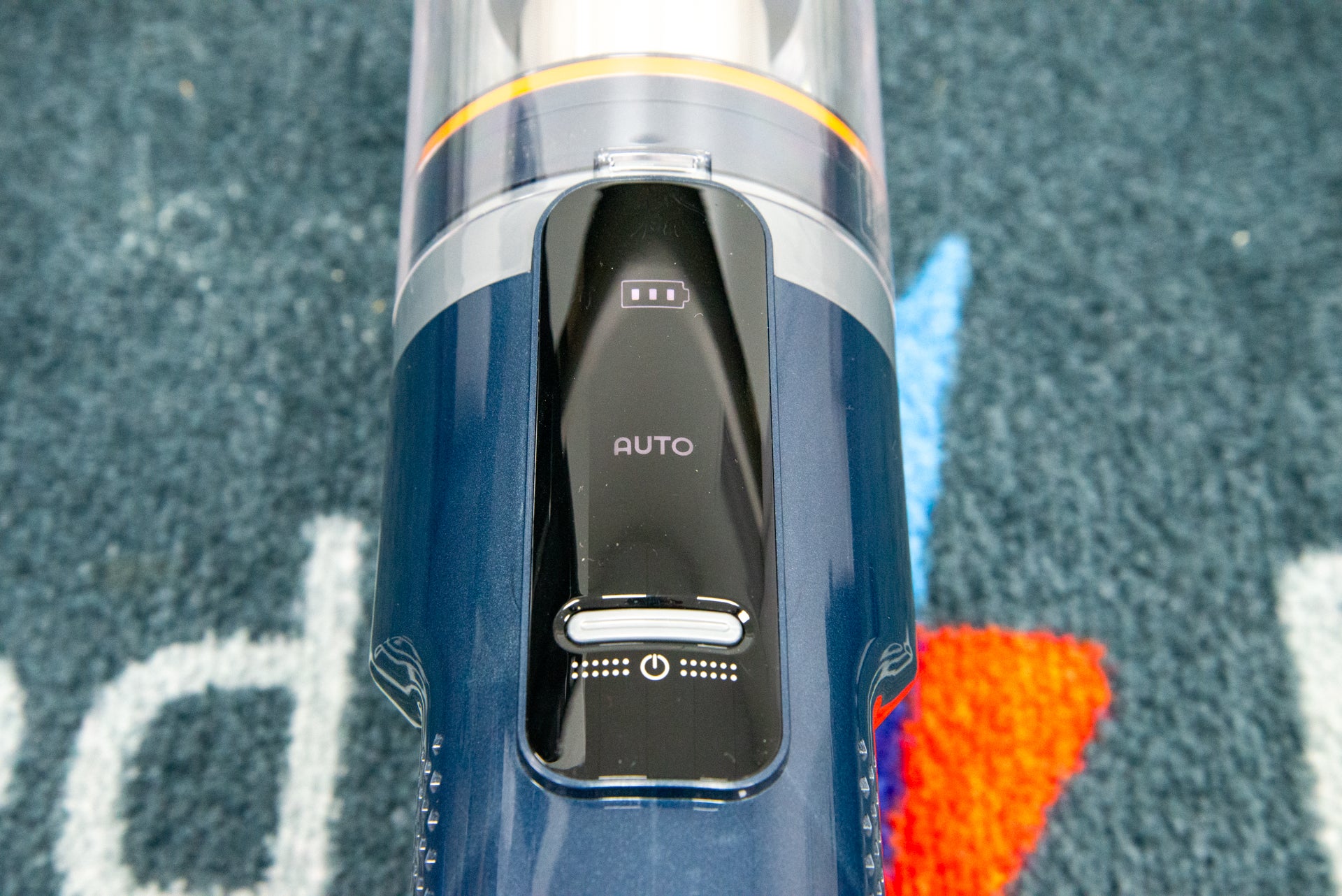
There’s also one additional clever feature. When the Ultenic FS1 is turned off, it first ramps up power to the maximum for a few seconds. This is a good way to ensure that bigger bits of dirt are sucked into the bin, rather than having them drop out when the cleaner turns off.
A basic battery meter is shown on the LCD. This has three bars that extinguish as the vacuum cleaner uses up its battery. As a rough estimate of power left, it’s a useful indicator, but I prefer a vacuum cleaner that shows a live percentage or time remaining in minutes.
This LCD also has error indicators, such as when the vacuum cleaner is blocked. They’re handy for showing what’s going on, but I had to refer to the manual to find out what the symbols meant.
Performance
- Decent suction levels
- Edge performance not great
- Some dust doesn’t make it to the bin
I tested the Ultenic FS1’s power at the handle, measuring in airwatts (AW), which is a combination of suction and airflow. In its Automatic mode, which is the standard cleaning mode, I measured 87AW, which is a good level of power.
In the low-power mode, the vacuum cleaner delivered a gentle 33AW, which is fine for a bit of light dusting. In the high-power mode, the vacuum cleaner delivered a 172AW, which is a lot of power.
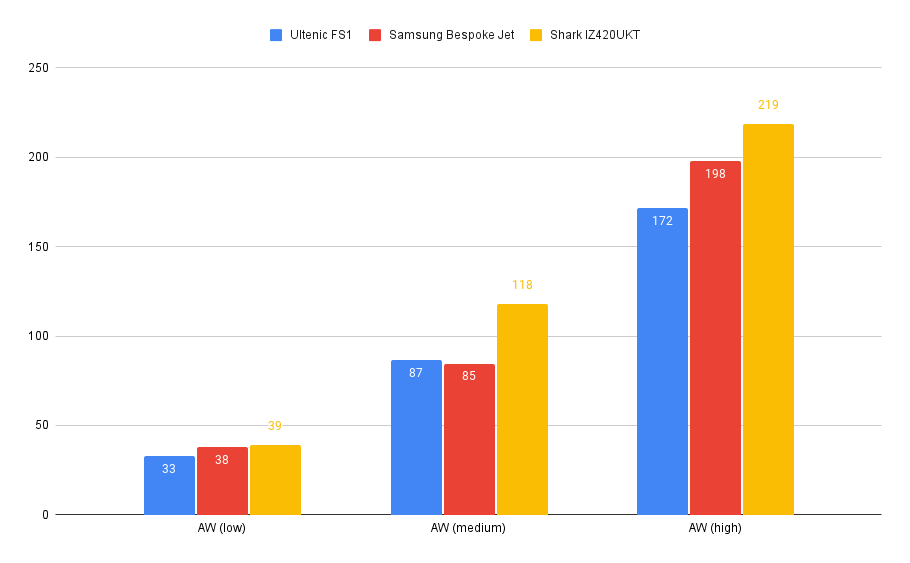
This power is useful with handheld tools: the more power, the quicker dust can be collected. To see how power translates into performance, I line up rice grains along a tape measure. I found that the Ultenic FS1 could pick up grains of rice from 2.4cm away, which is very good.
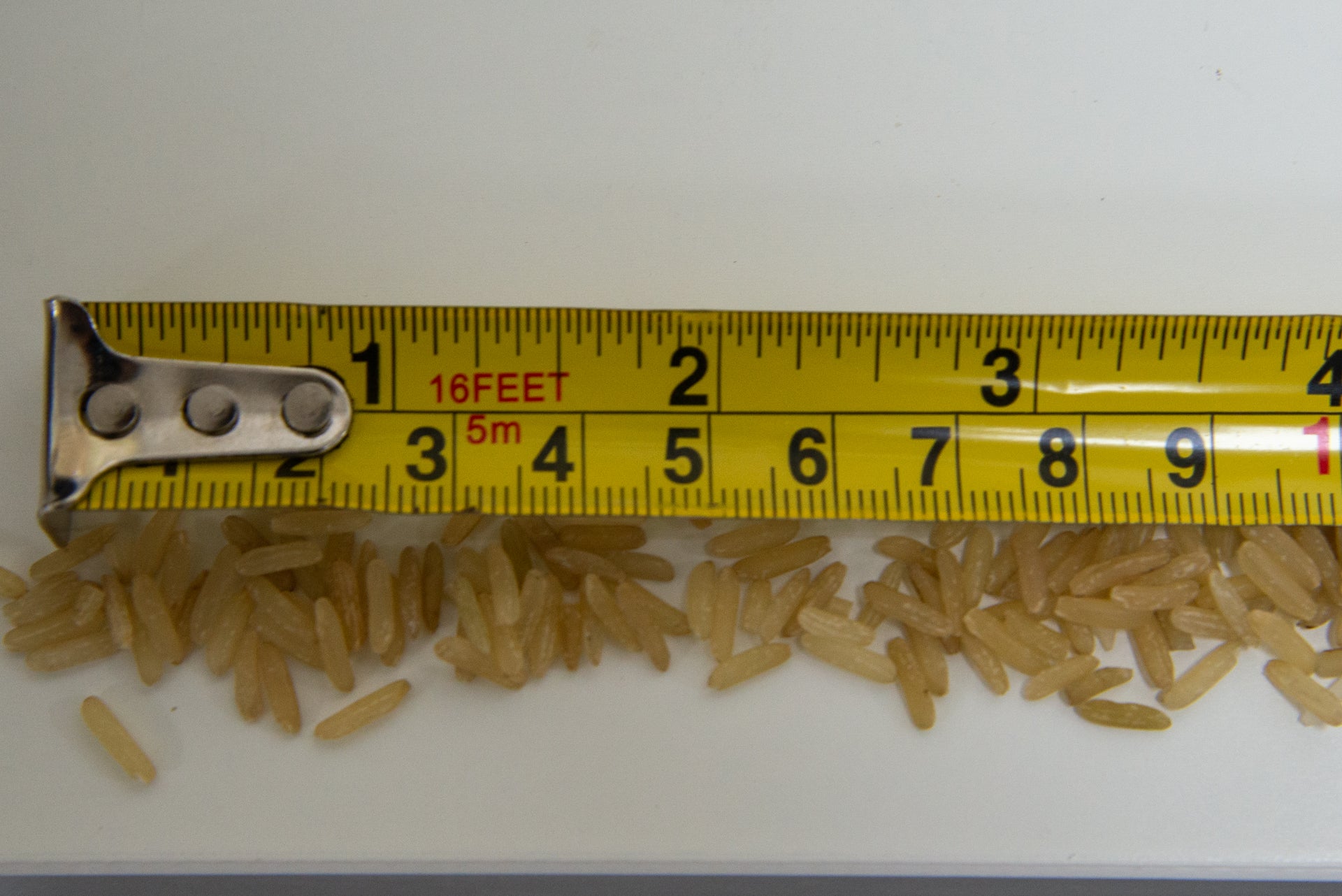
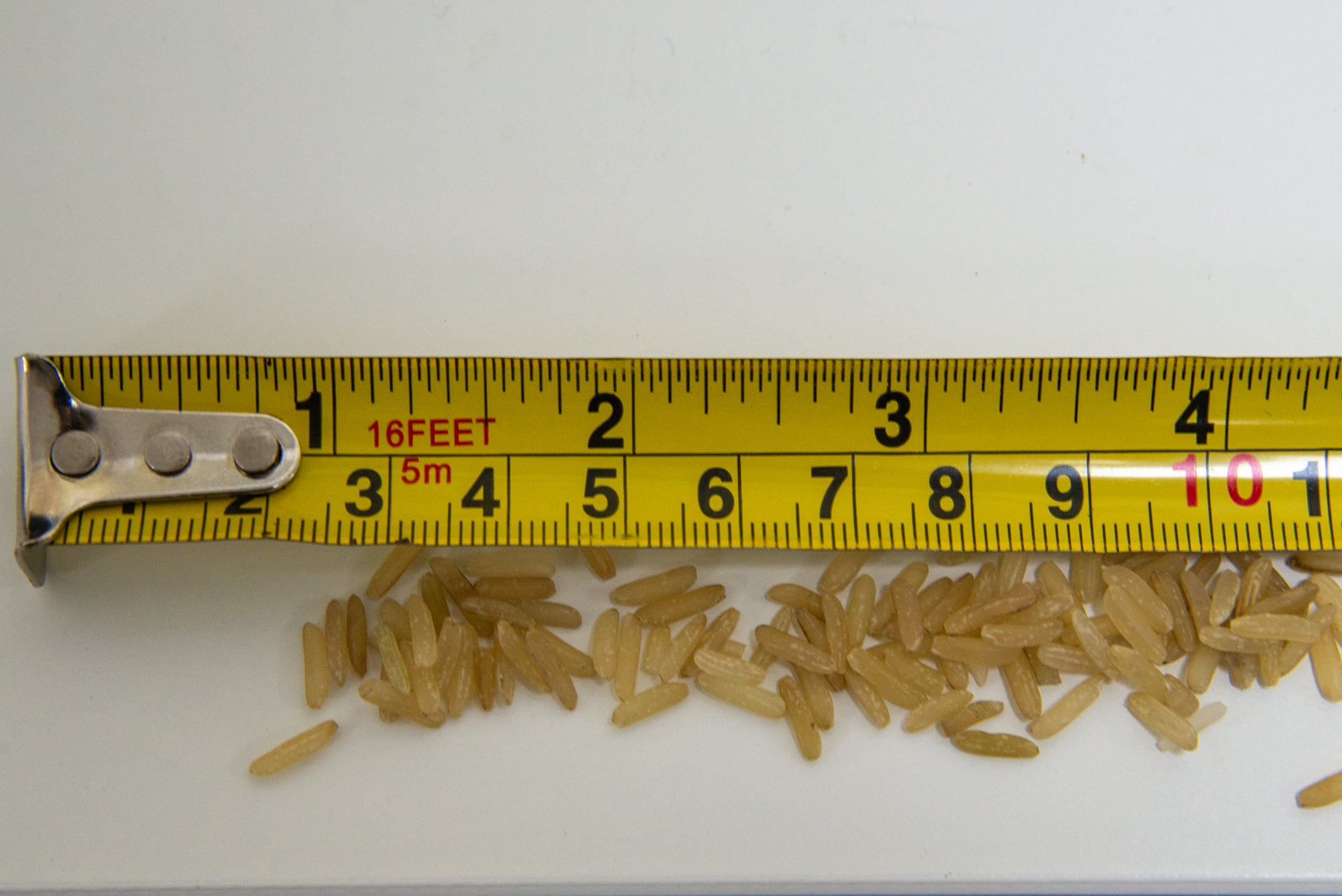
Next, I moved to my real-world tests, adding 20g of flour to my test carpet. Running the Ultenic FS1 backwards and forwards through the mess, I found that the middle was quite well taken care of, but there was a lot of dust to the sides.
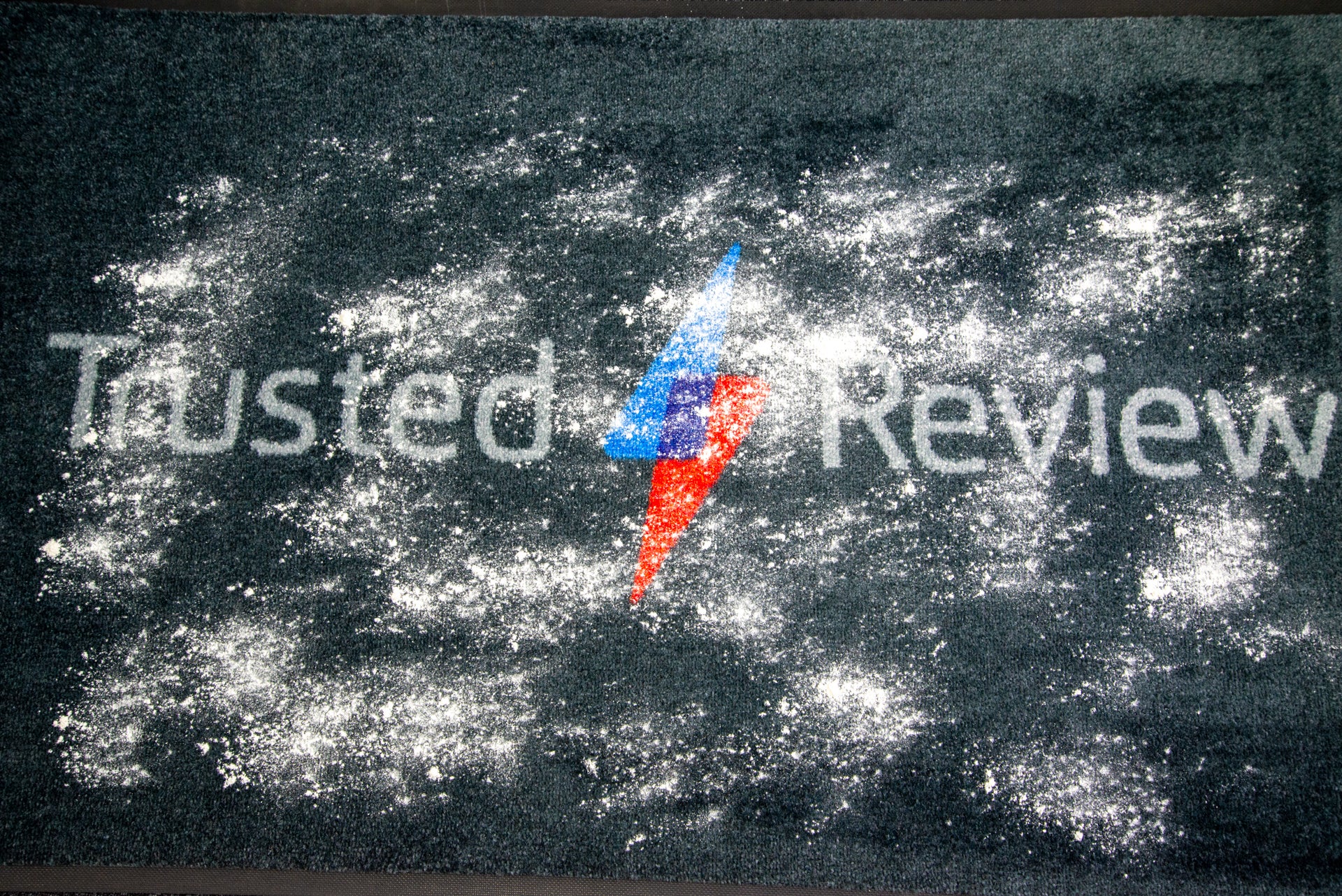
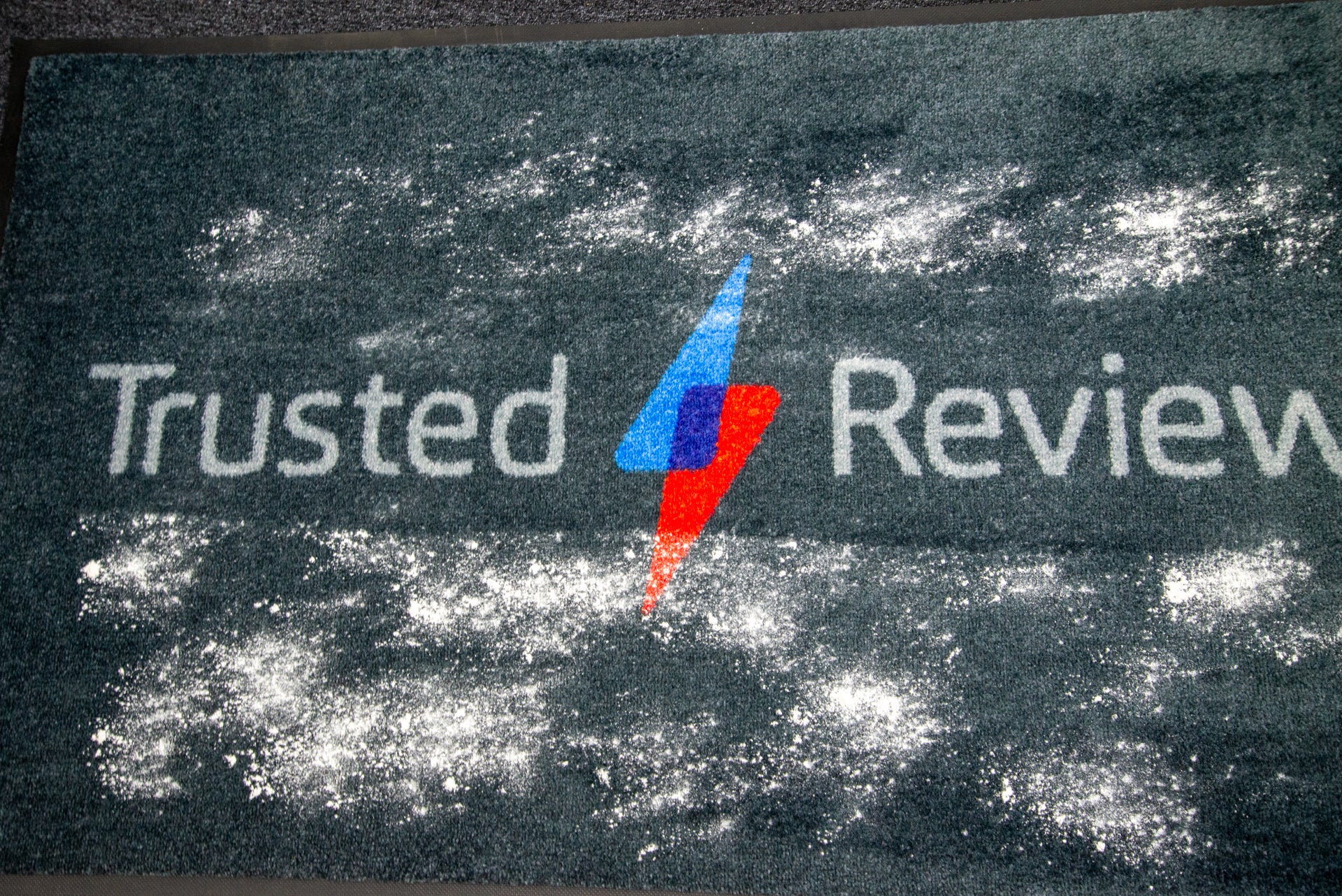
I then tackled the bottom on low power and the top of the carpet on high power. As you can see, the turbo mode is much more effective.

To finish off, I gave each strip five sweeps in automatic mode. Measuring the handheld unit before and after the clean, I found that 71.7% of the dust had been sucked up this far; the remainder was either in the wand, the floor head or the carpet. This result is alright, but there are cordless cleaners that can do better.
Next, I put 10g of flour right to the edge of the room against the skirting board. Here, the Ultenic FS1 struggled on automatic mode, leaving a lot of mess behind.
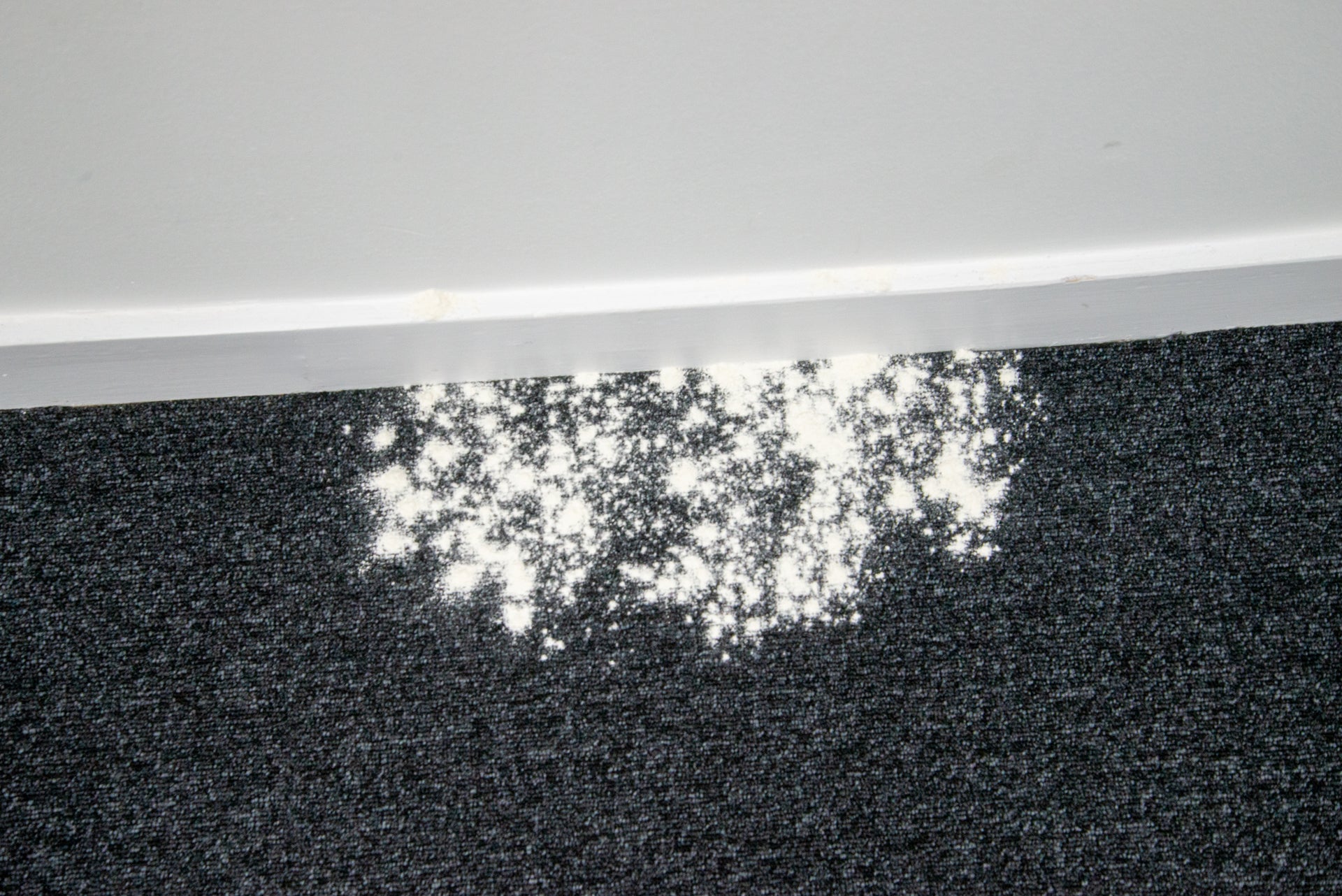
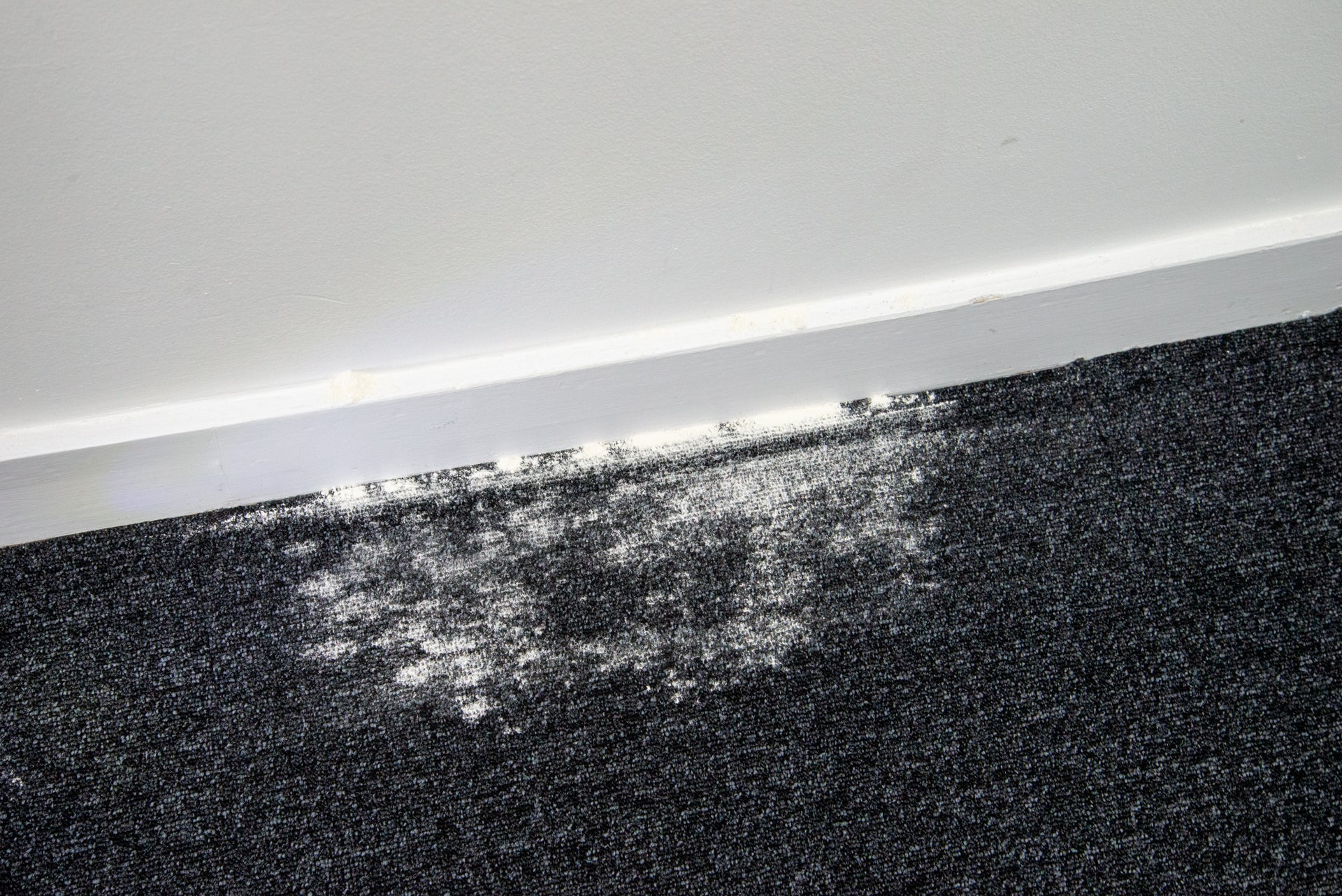
Even upping to Boost mode, the floor head struggled to pick up the mess. Overall, the vacuum cleaner managed to get 64.7% of the dust into the handheld unit and bin. Using the crevice tool to finish the job, I found that 95.9% of the dust could be collected.
Moving to the hard floor test, I sprinkled 20g of rice on the floor. I used the Ultenic FS1 in automatic mode, and it collected every grain of rice without dropping any out, for a 100% collection performance.
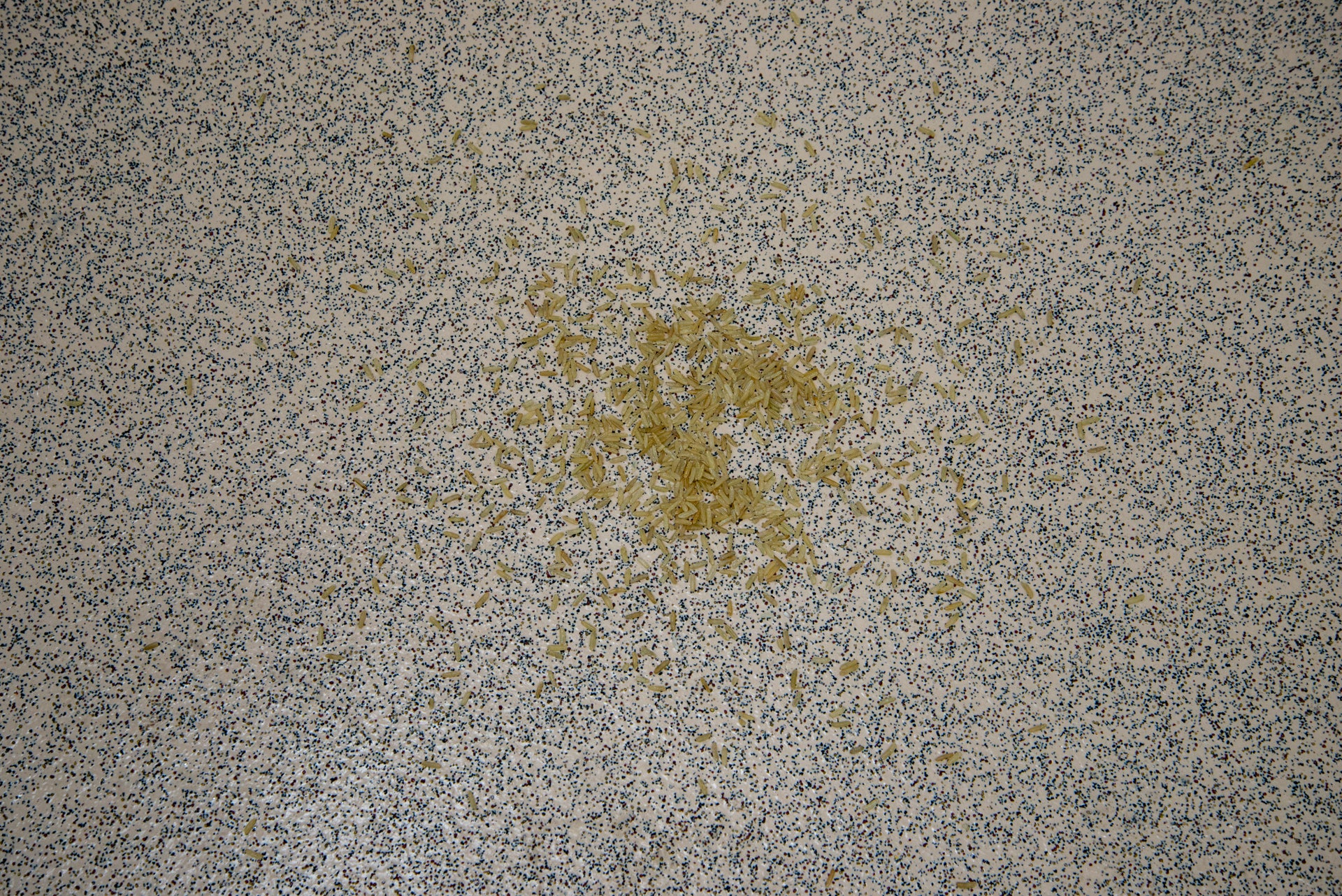
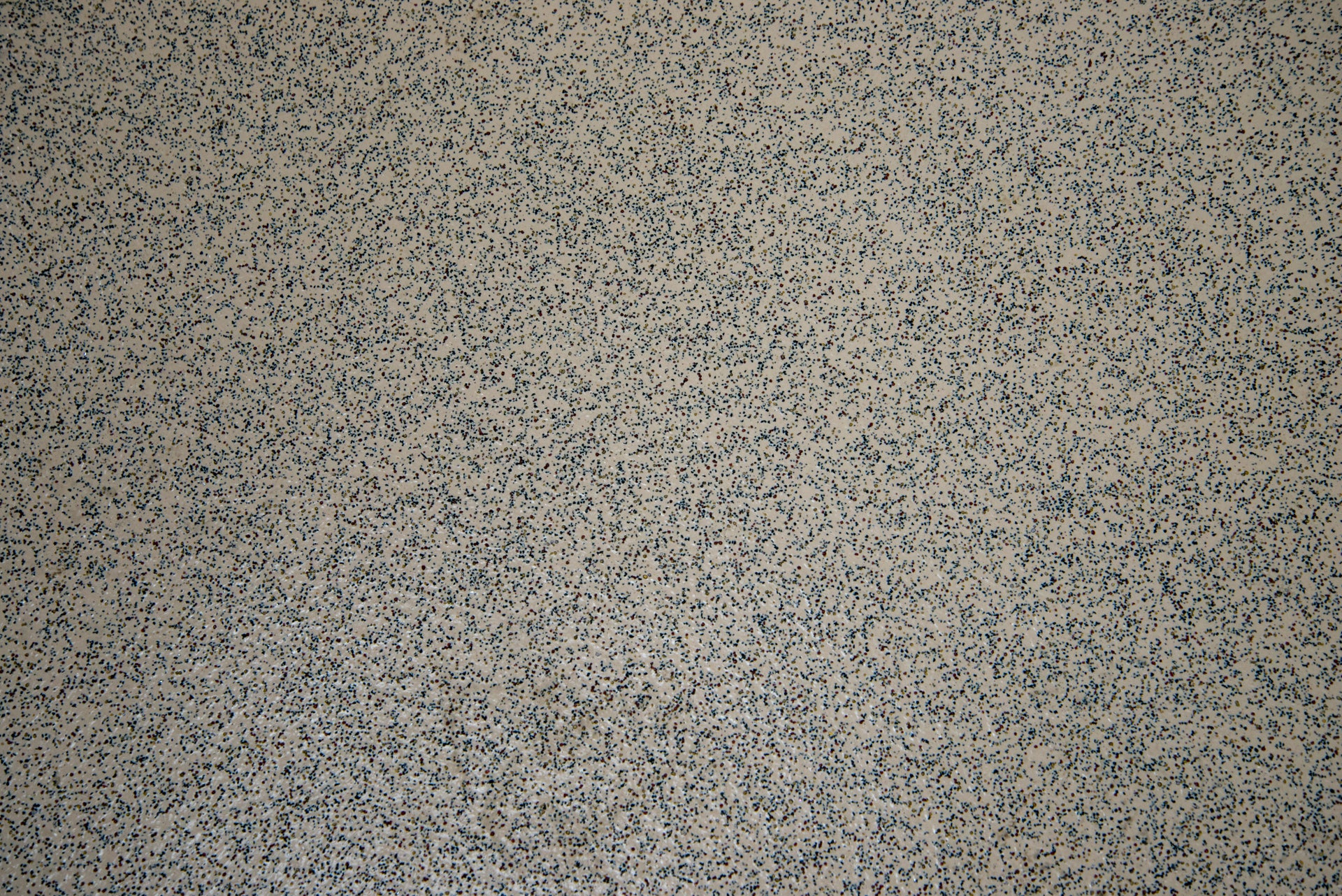
Finally, I combed cat hair into my test carpet, then used the Ultenic FS1 to collect the mess. Here, most hairs were gone, bar the odd strand.


I didn’t run my human hair test on this cleaner, as it doesn’t have an anti-tangle head, so will get clogged with hair over time.
I measured the Ultenic FS1 at a reasonable 74dB on automatic mode, jumping to a loud 79.8dB on boost and lowering to a quieter 69.5dB on eco mode.
Battery life is rated at up to 60 minutes on the lowest power setting. On the maximum mode, I found juice ran out in 11m 38s. With Auto mode, I’d expect 25 to 30 minutes of cleaning, so smaller homes can be tackled on charge; larger homes will want two batteries for in-depth cleaning.
Latest deals
Should you buy it?
You want a self-emptying vacuum cleaner: Ditching dust automatically, this cleaner is well priced and clean to empty.
You want a more responsive vacuum cleaner: I found the Shark Stratos IZ420UKT more responsive to dust in my tests.
Final Thoughts
Well-priced, especially considering there’s a self-emptying docking station, the Ultenic FS1 is a handy cordless vacuum cleaner for those that want a clean way to empty the bin.
I found that this model did very well on hard floors, and well on carpet, although it could have done better in my edge test. If you’re after a mid-range cleaner that can self empty, this one has a lot to recommend it, but the similarly priced Shark Stratos IZ420UKT cleans better. Check out my guide to the best cordless vacuum cleaners for alternatives.
How we test
We test every vacuum cleaner we review thoroughly over an extended period of time. We use industry standard tests to compare features properly. We’ll always tell you what we find. We never, ever, accept money to review a product.
Find out more about how we test in our ethics policy.
Used as our main vacuum cleaner for the review period
Tested for at least a week
Tested using tools to measure actual suction performance
Tested with real-world dirt in real-world situations for fair comparisons with other vacuum cleaners
FAQs
Two: one in the main unit and one in the dock.
This has a vacuum cleaner that sucks dust out of the cordless cleaner’s bin, into a bag. It’s a cleaner way of emptying that avoids spreading dust everywhere.

